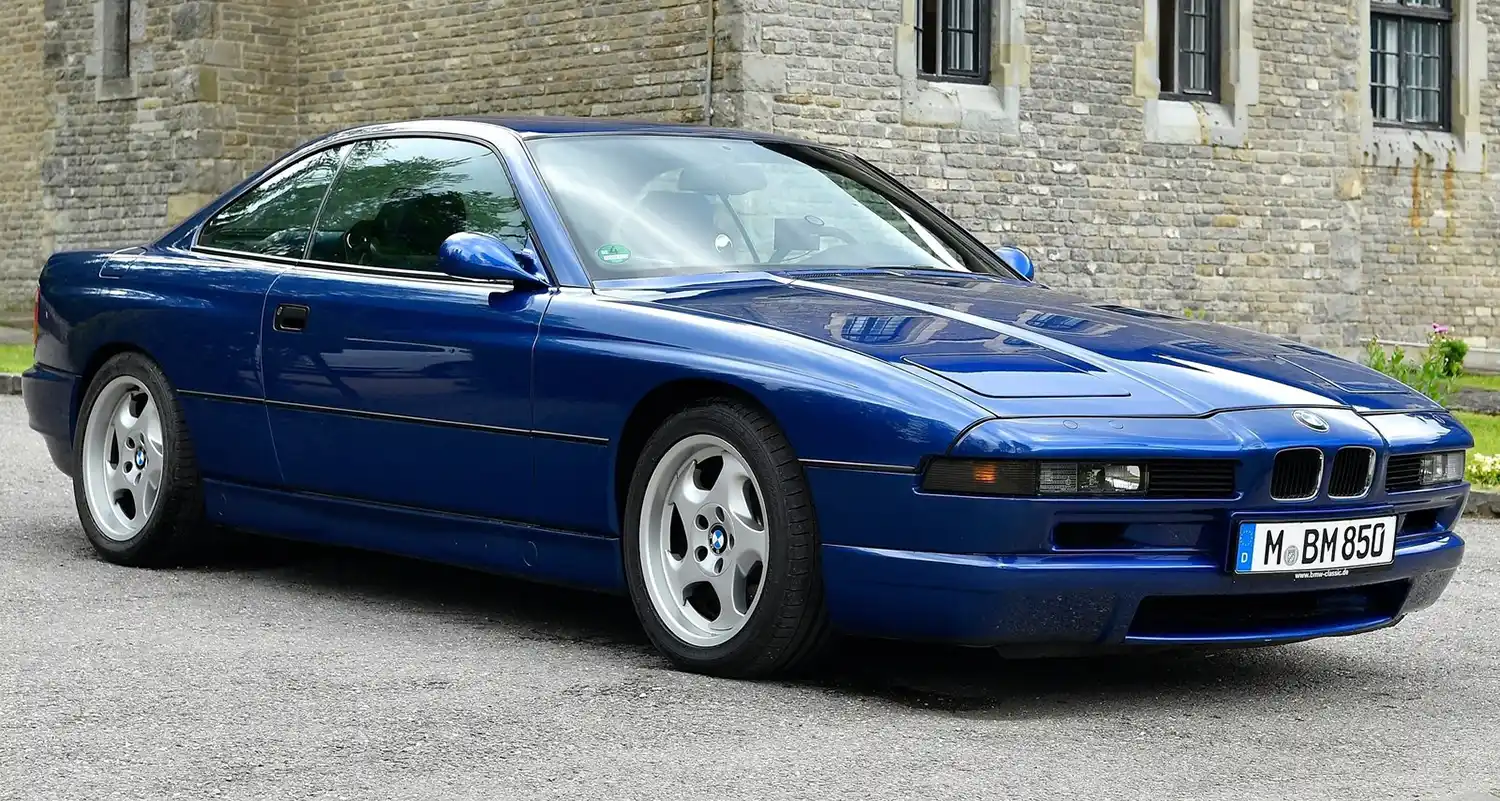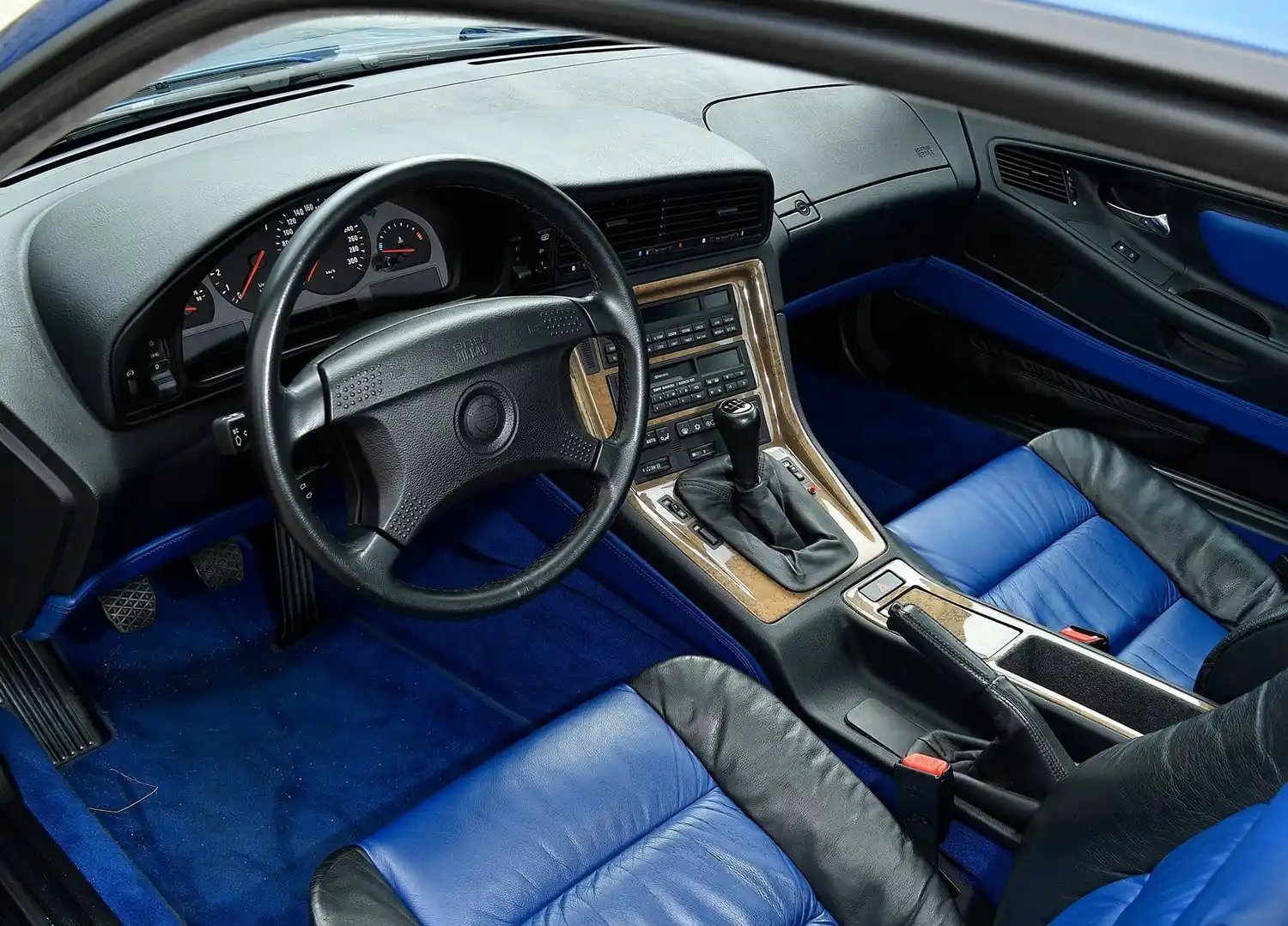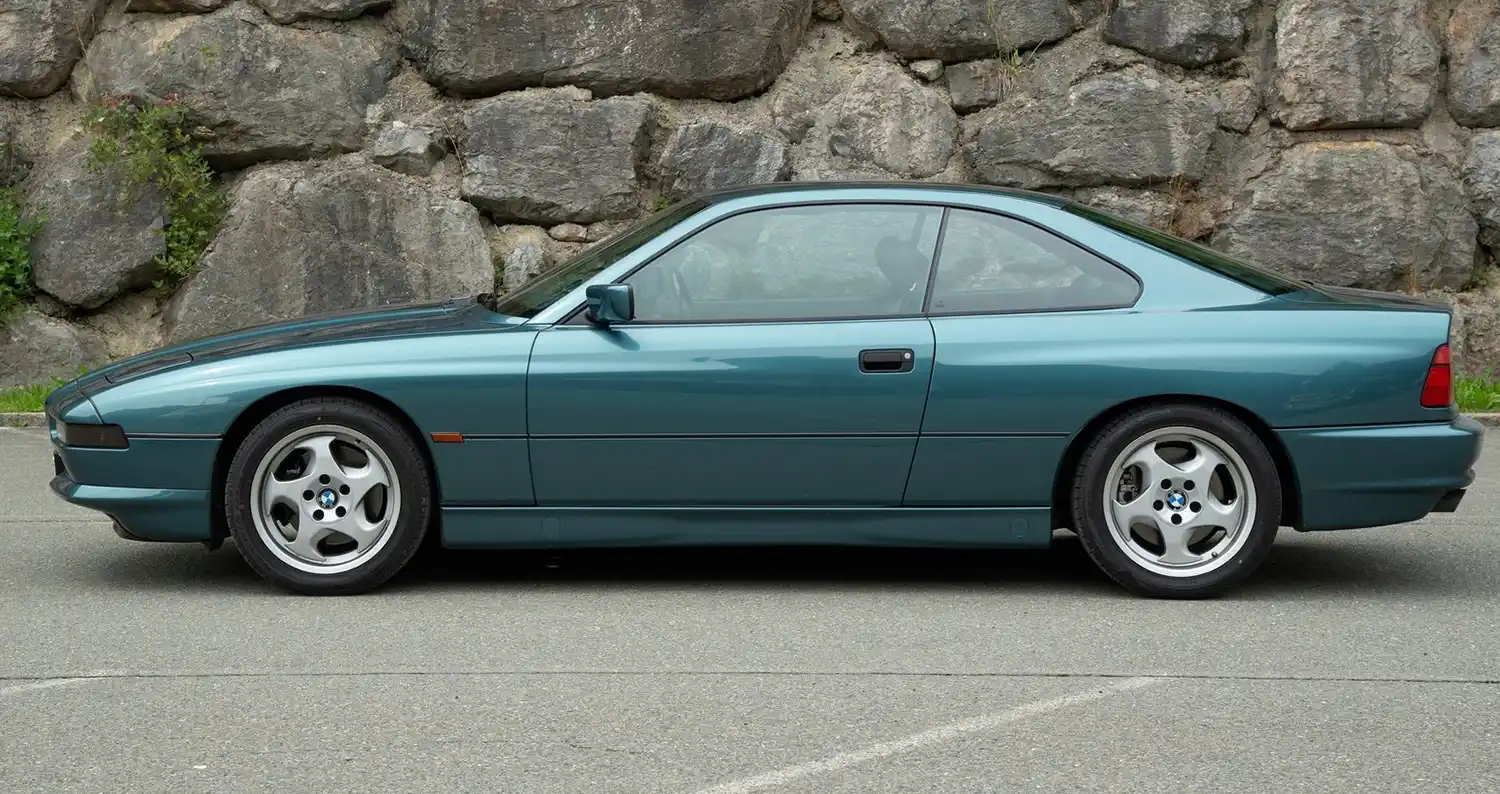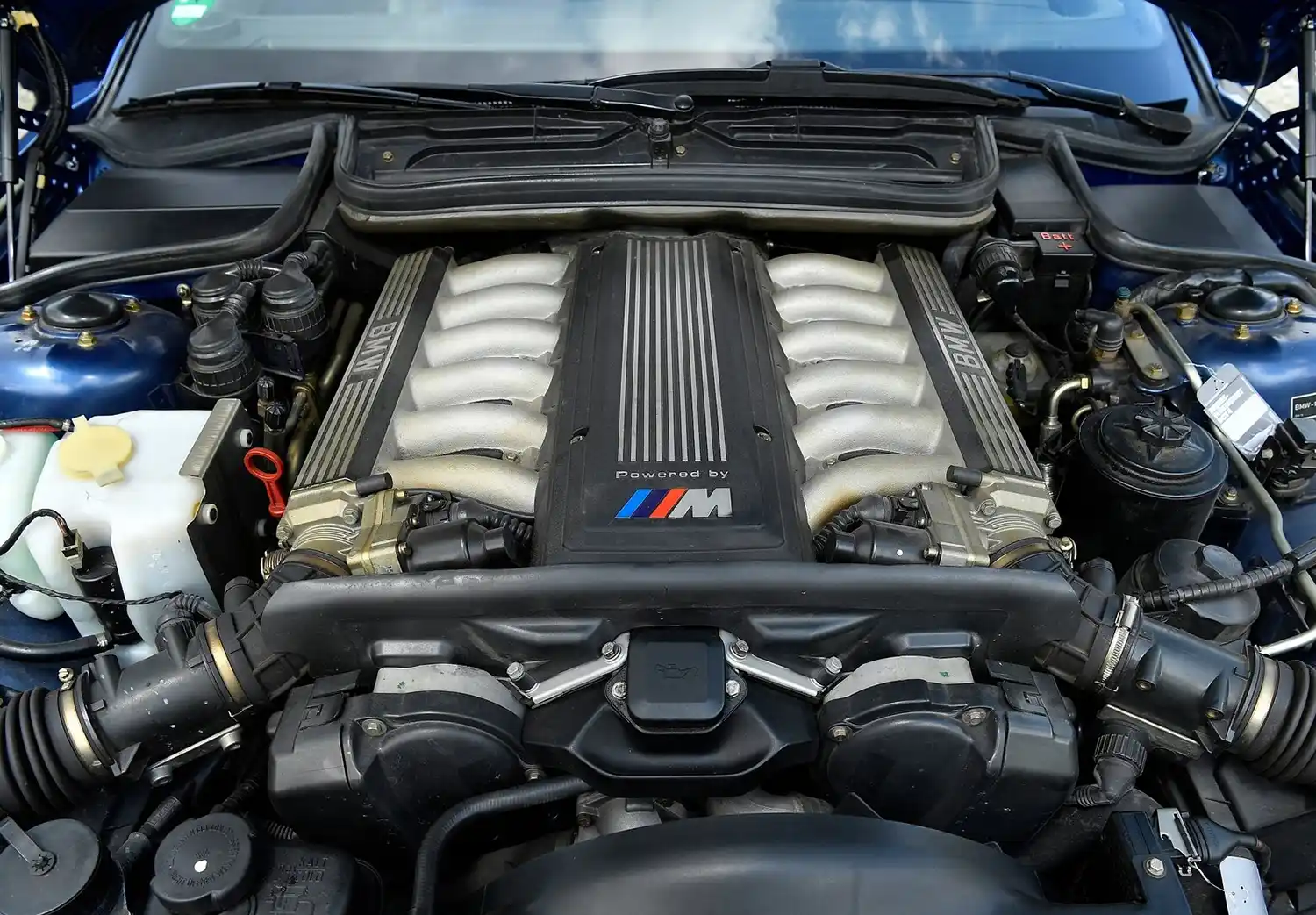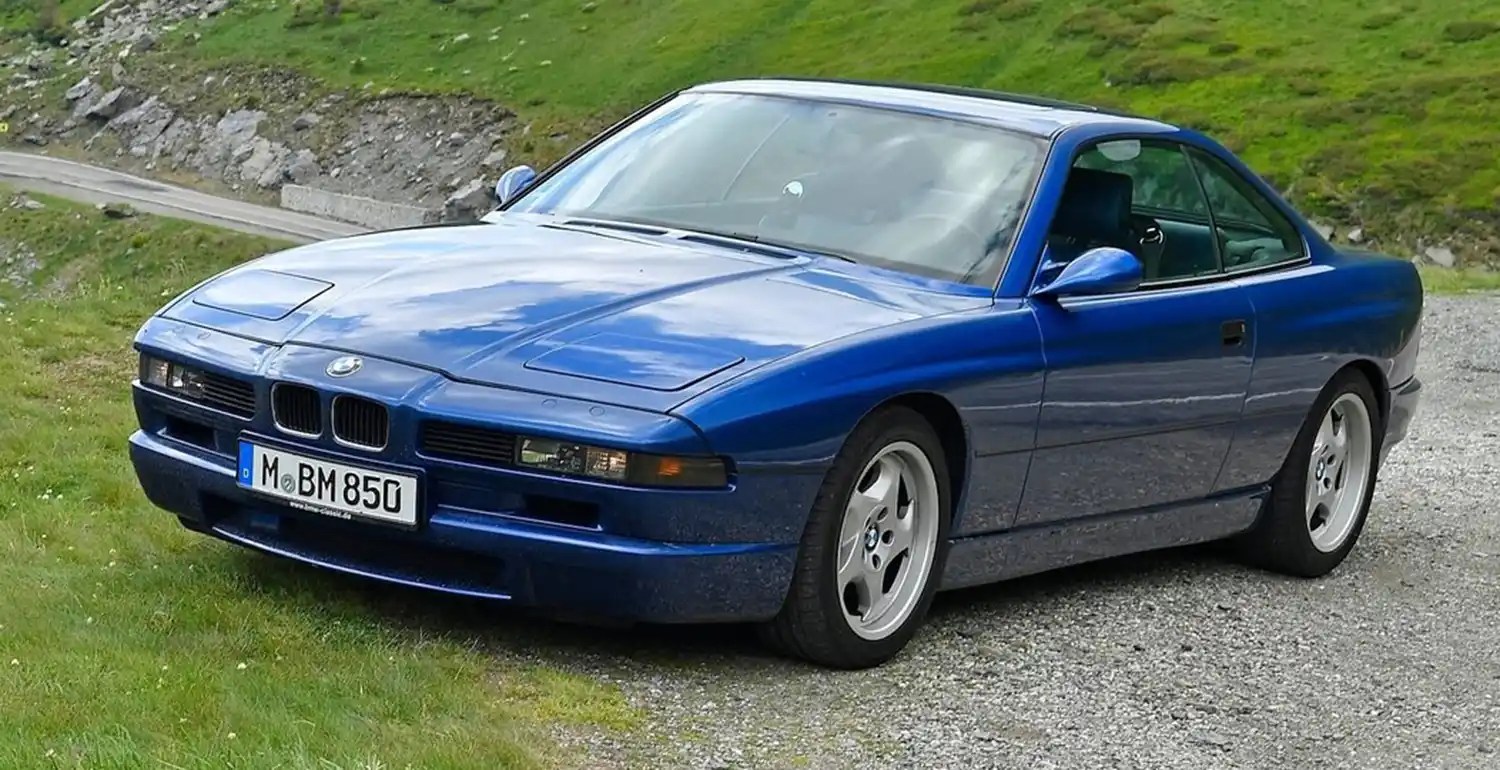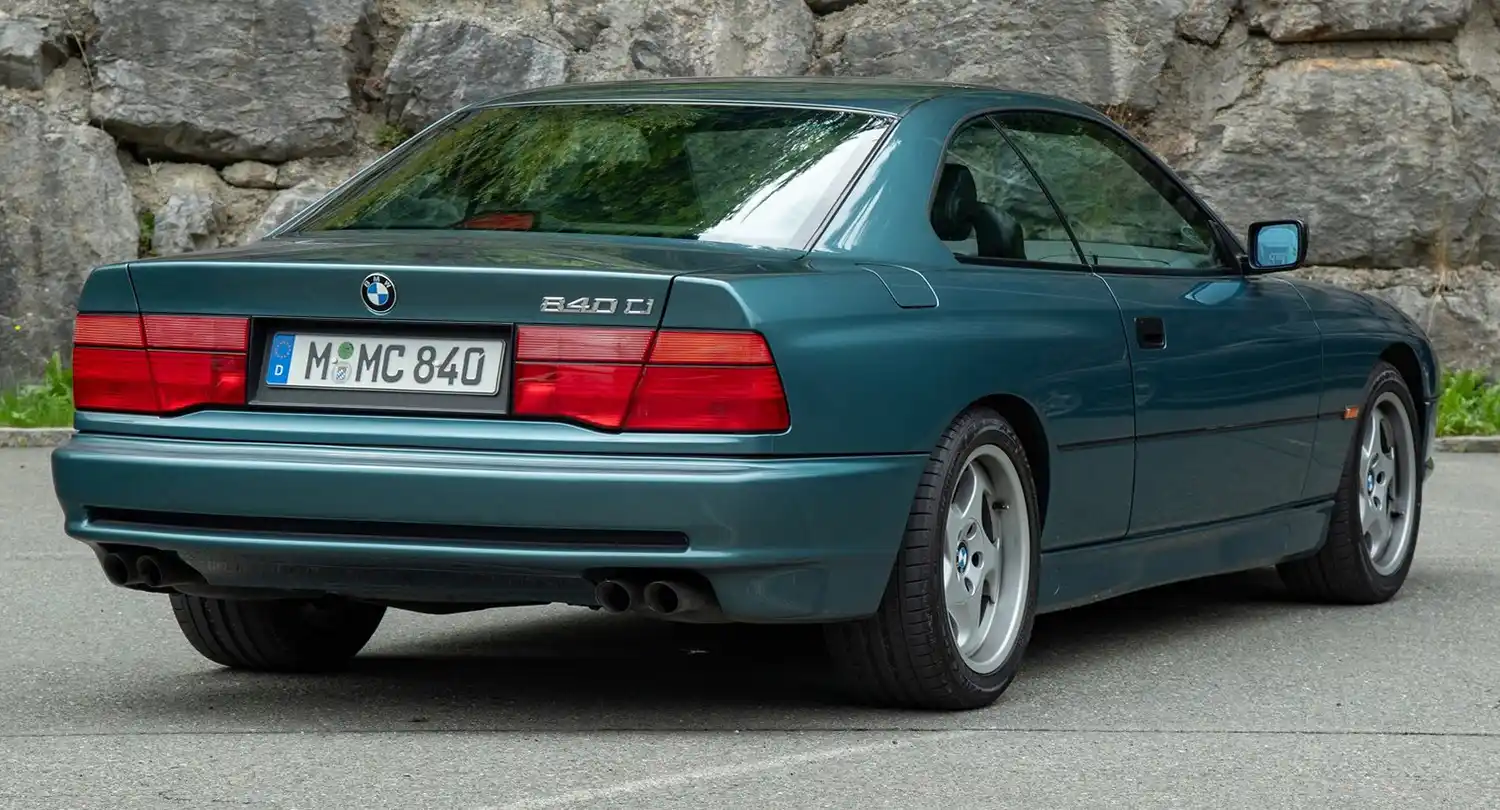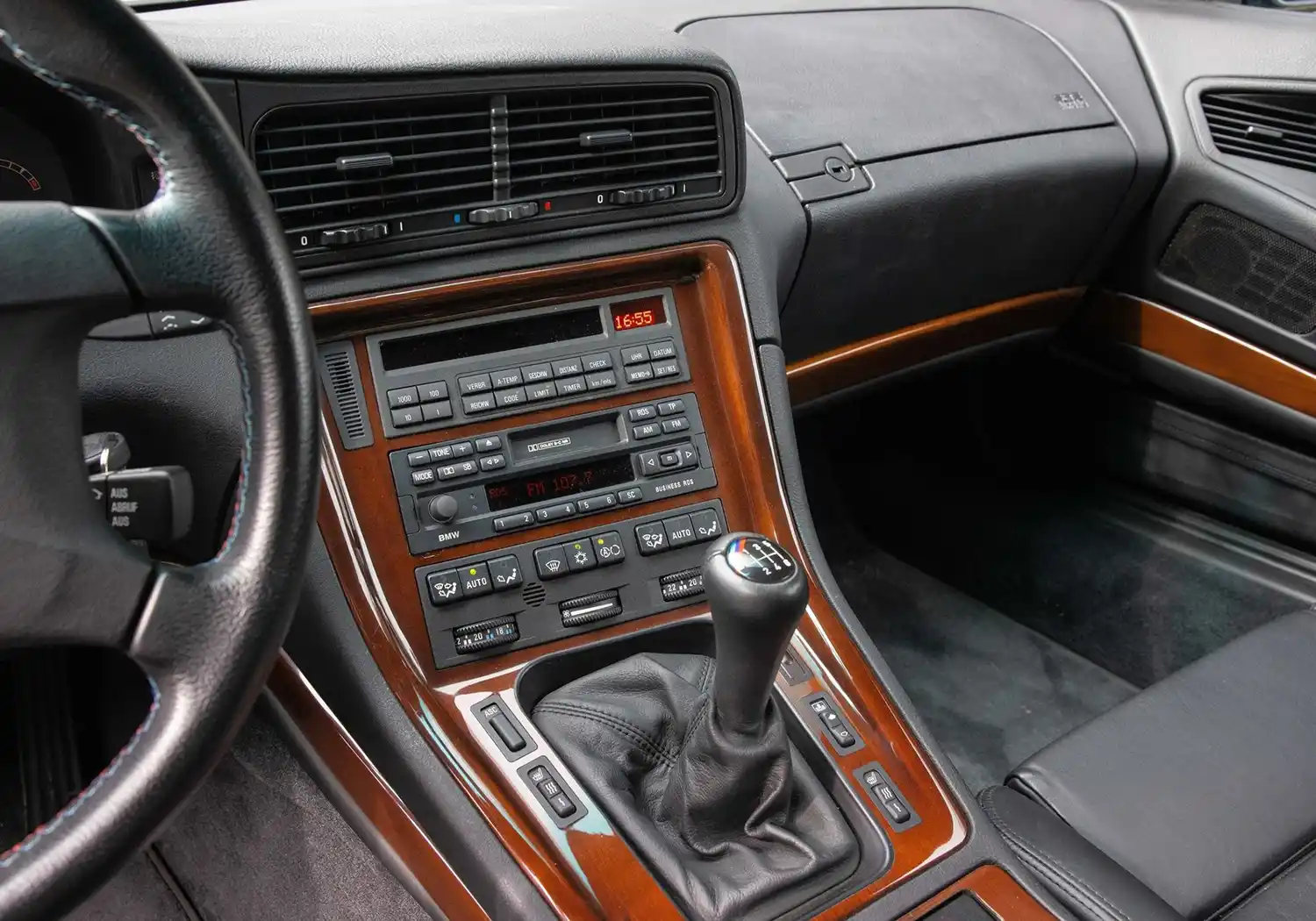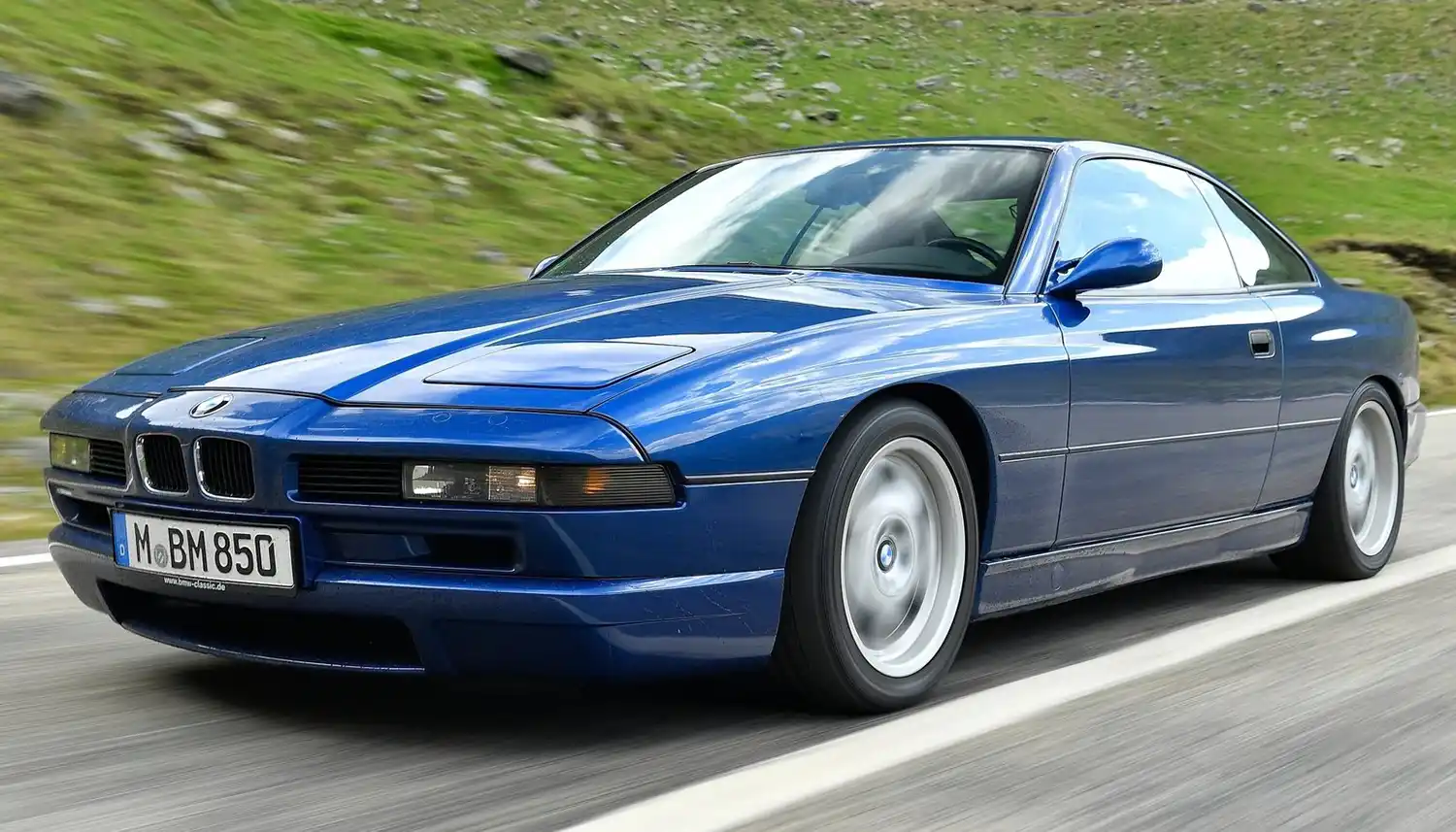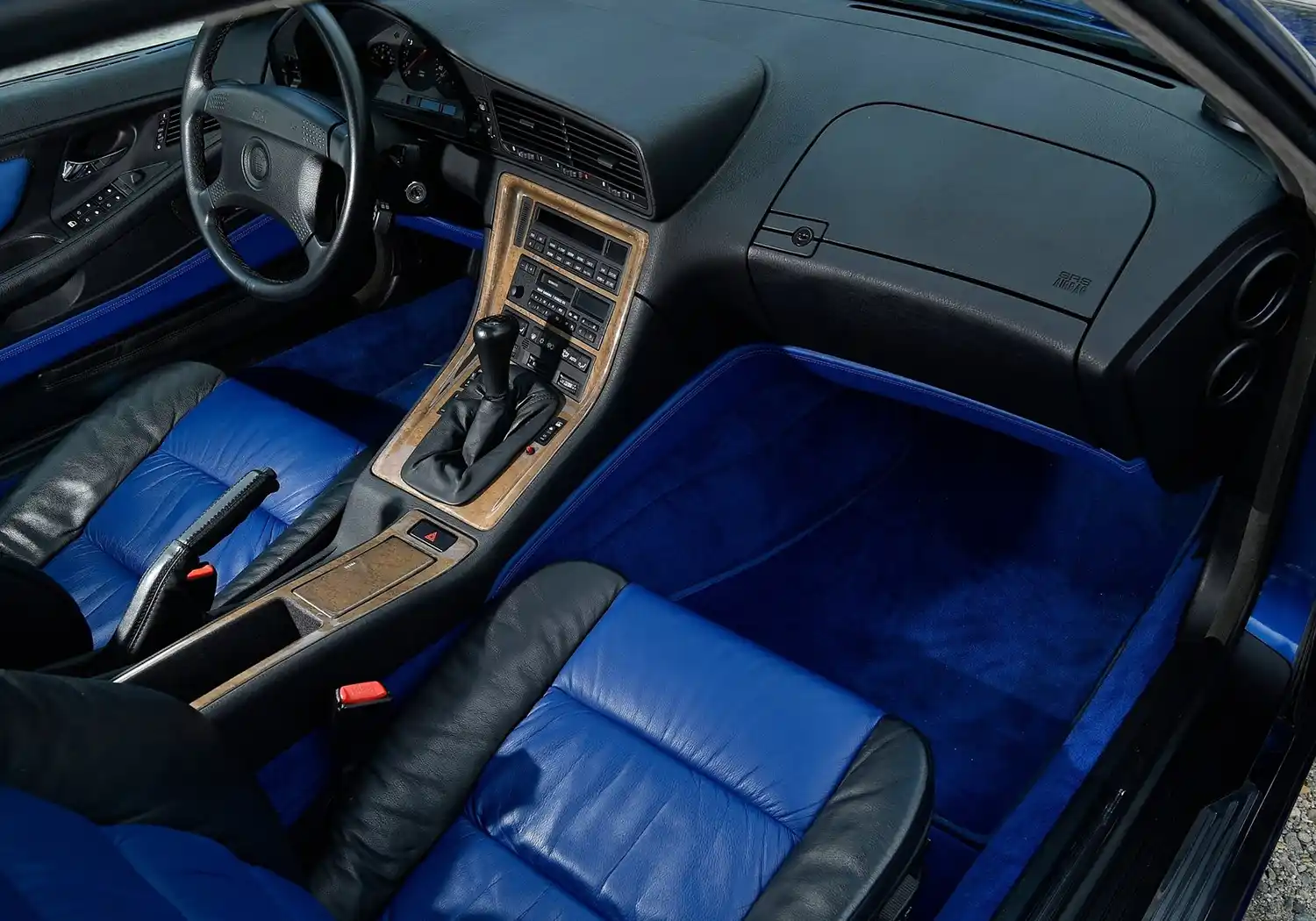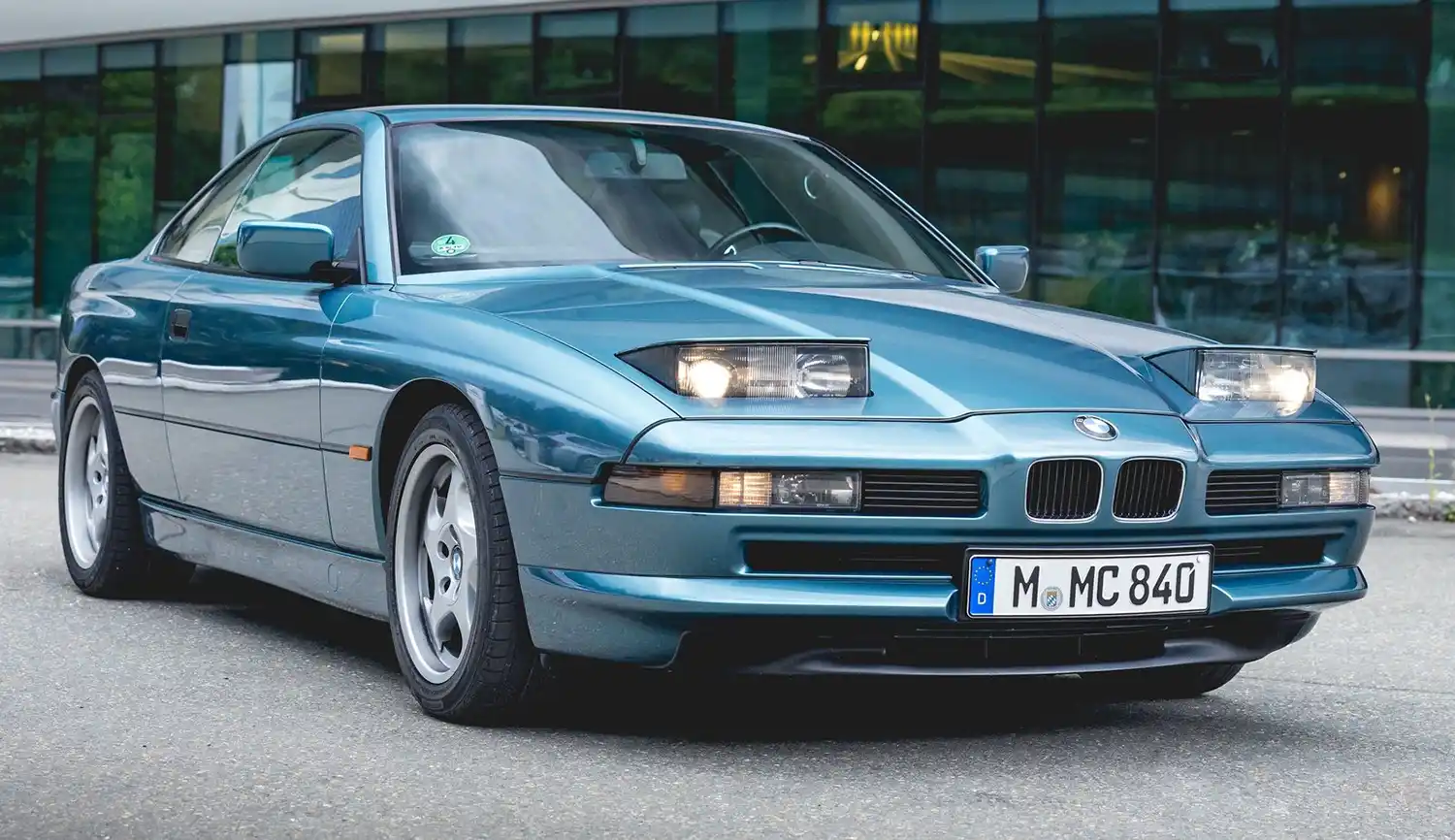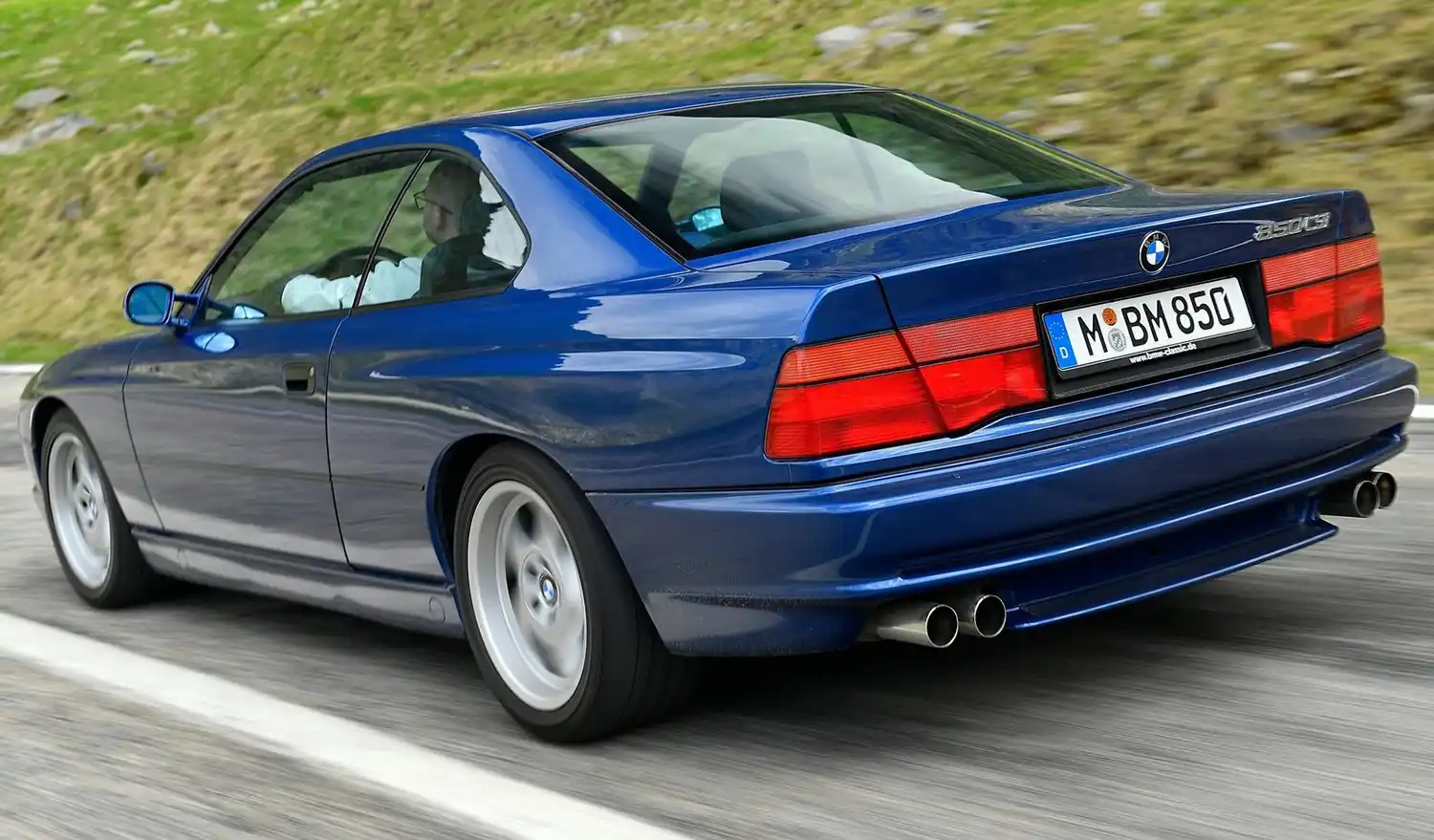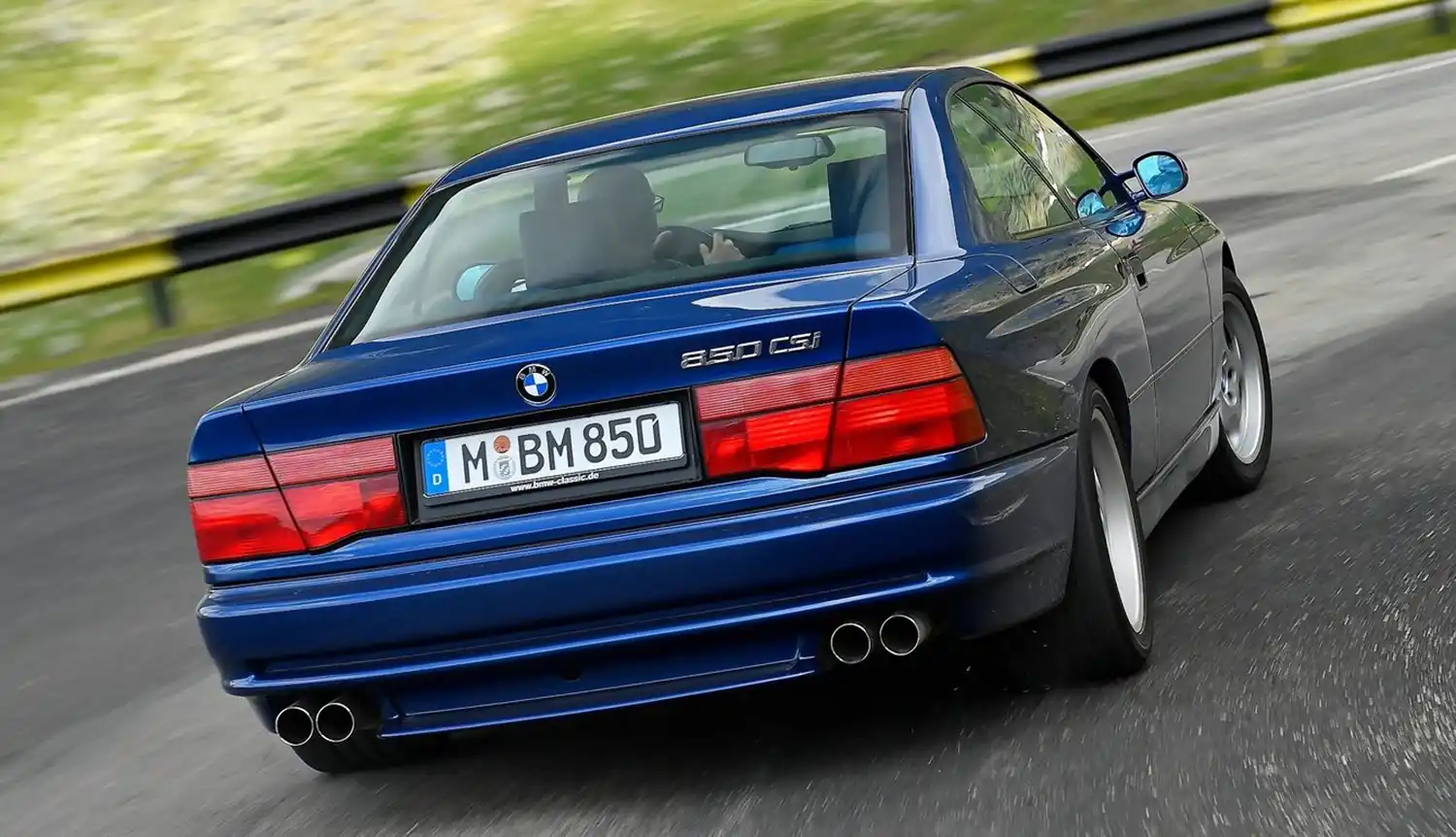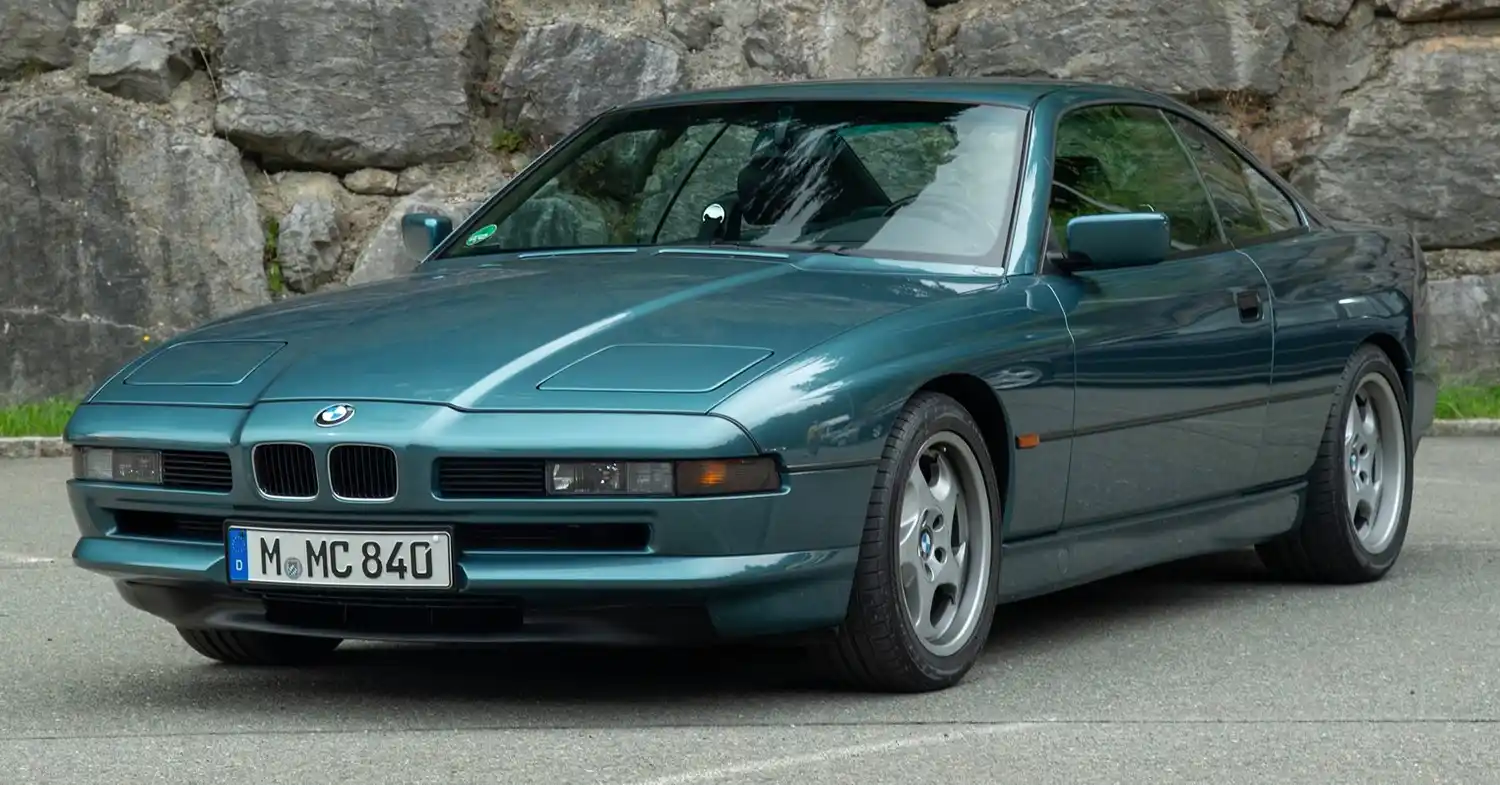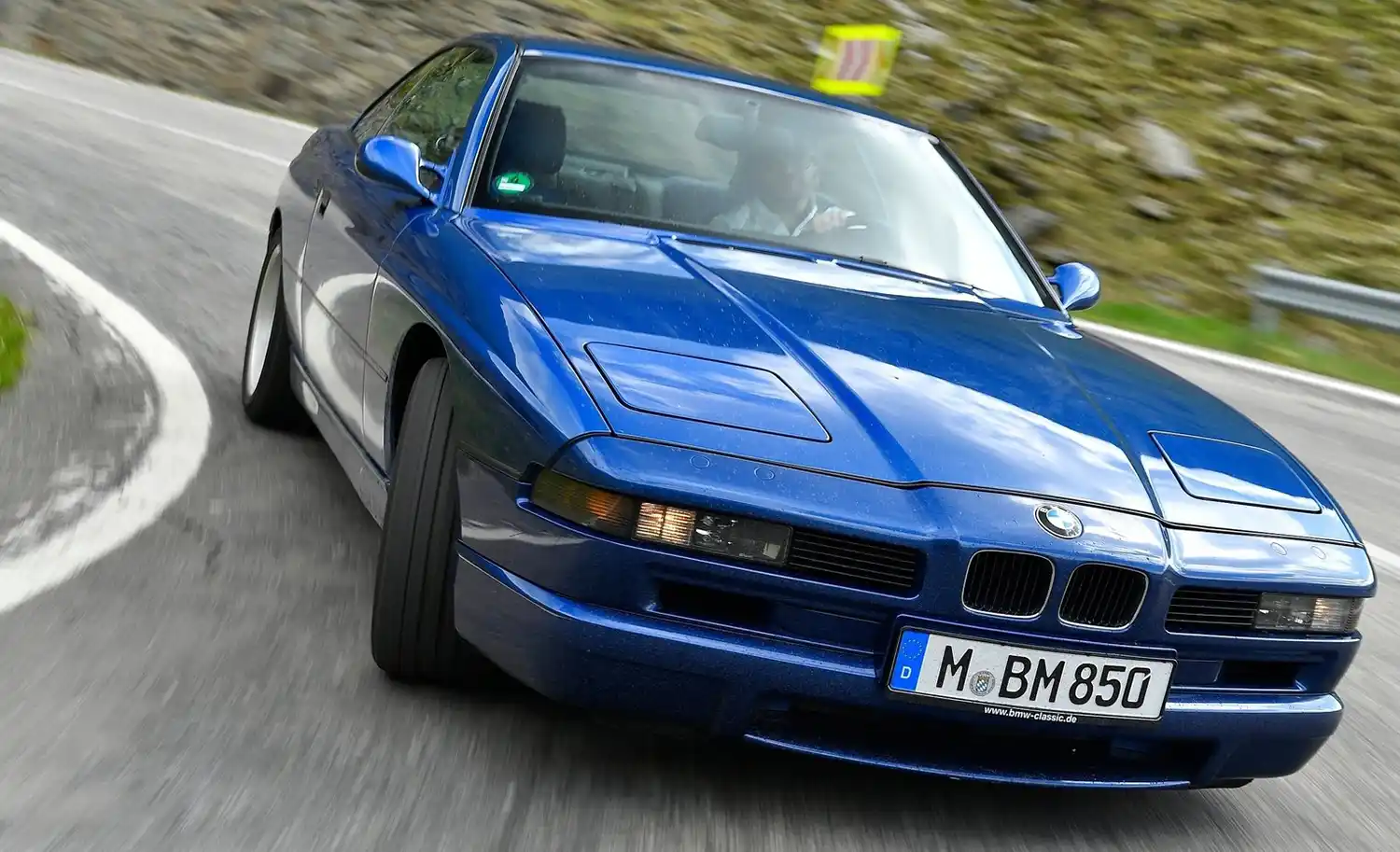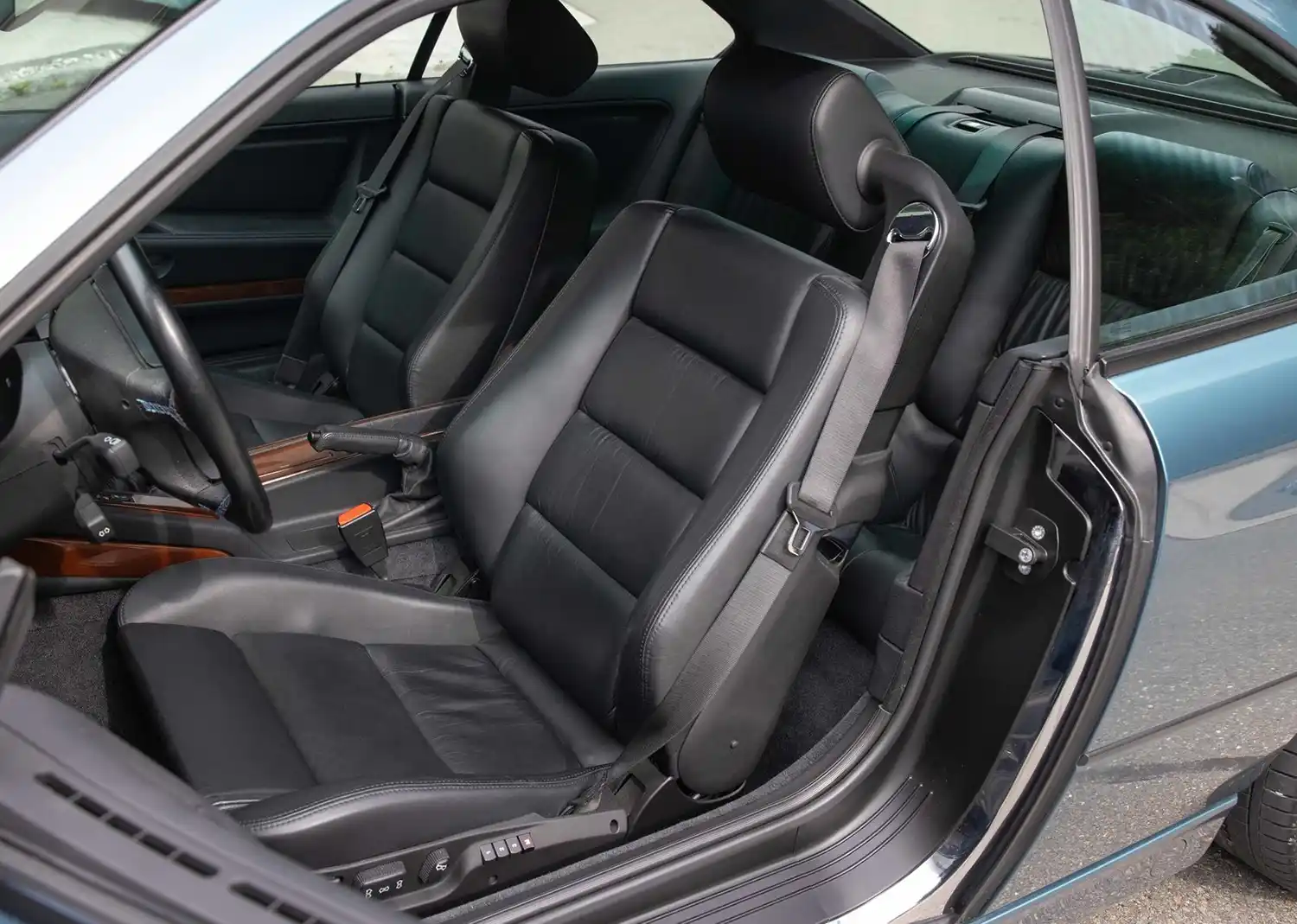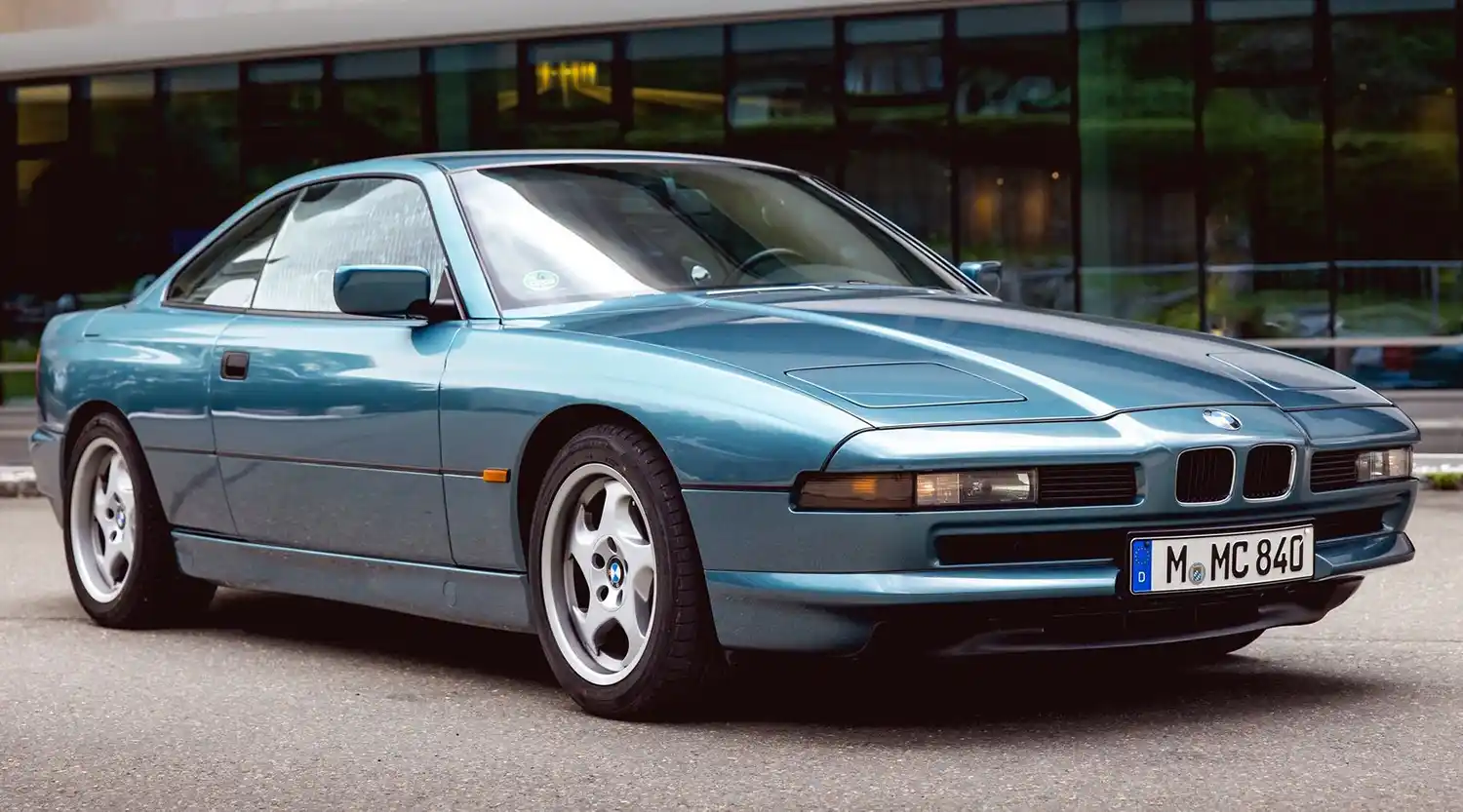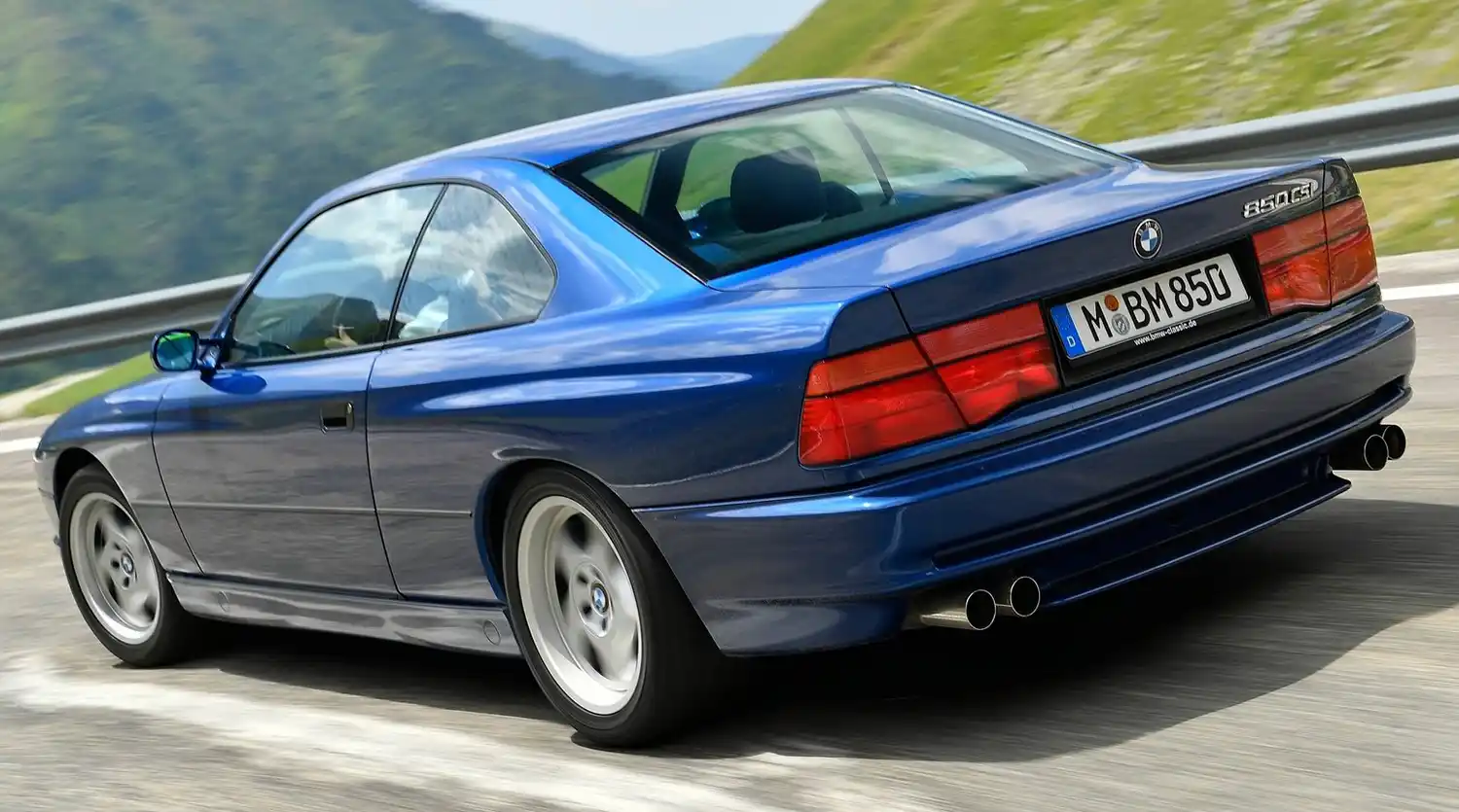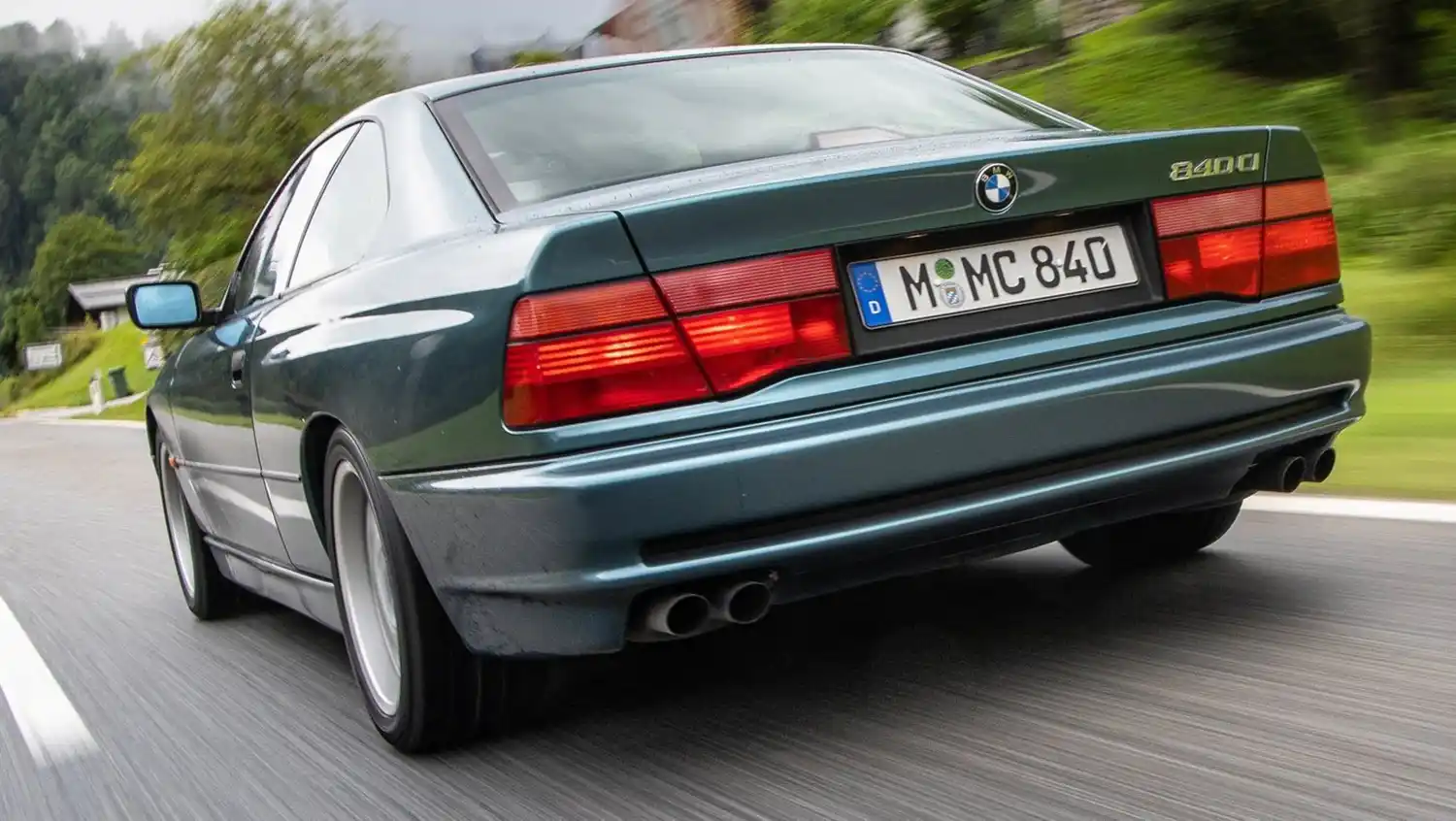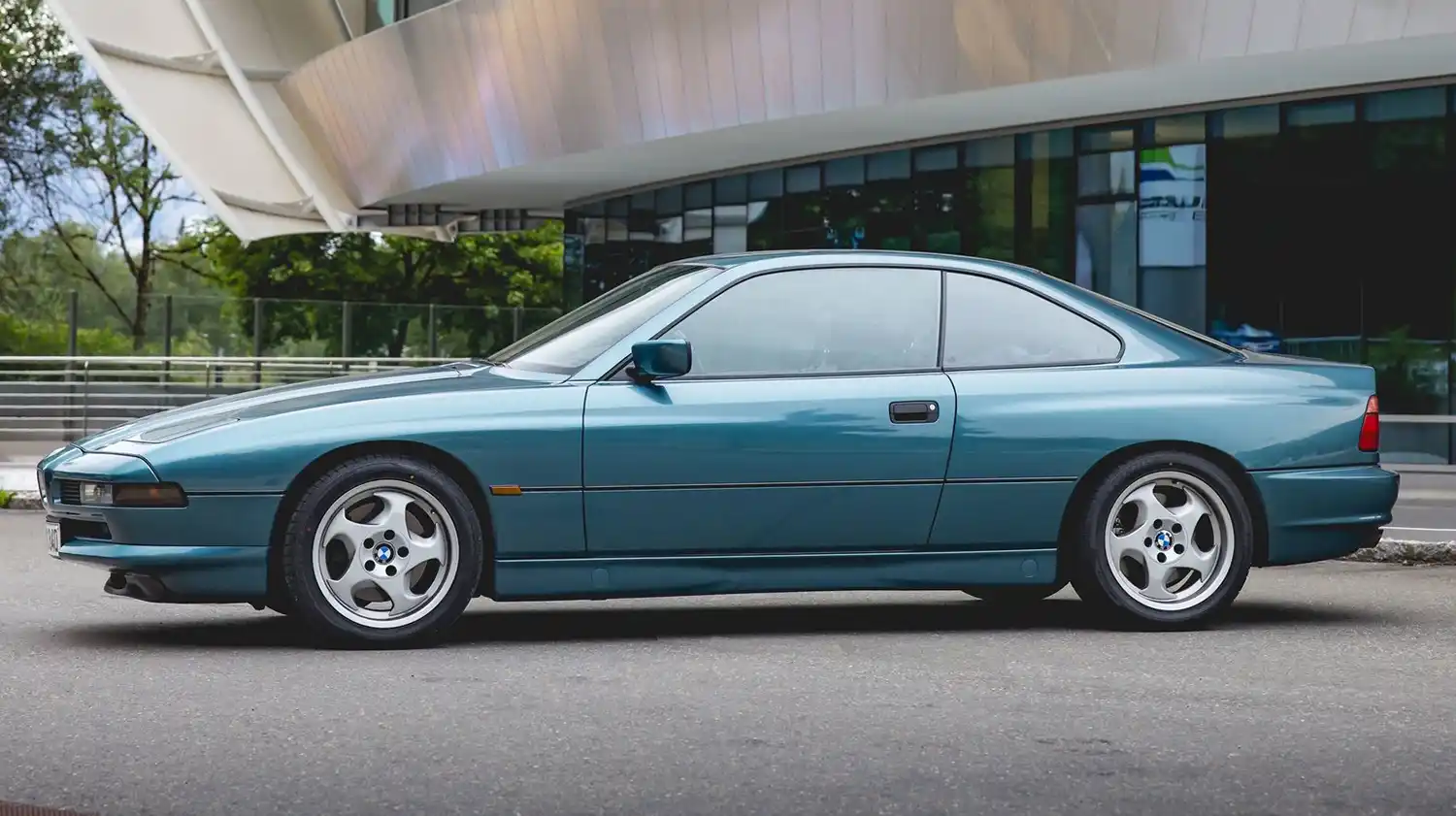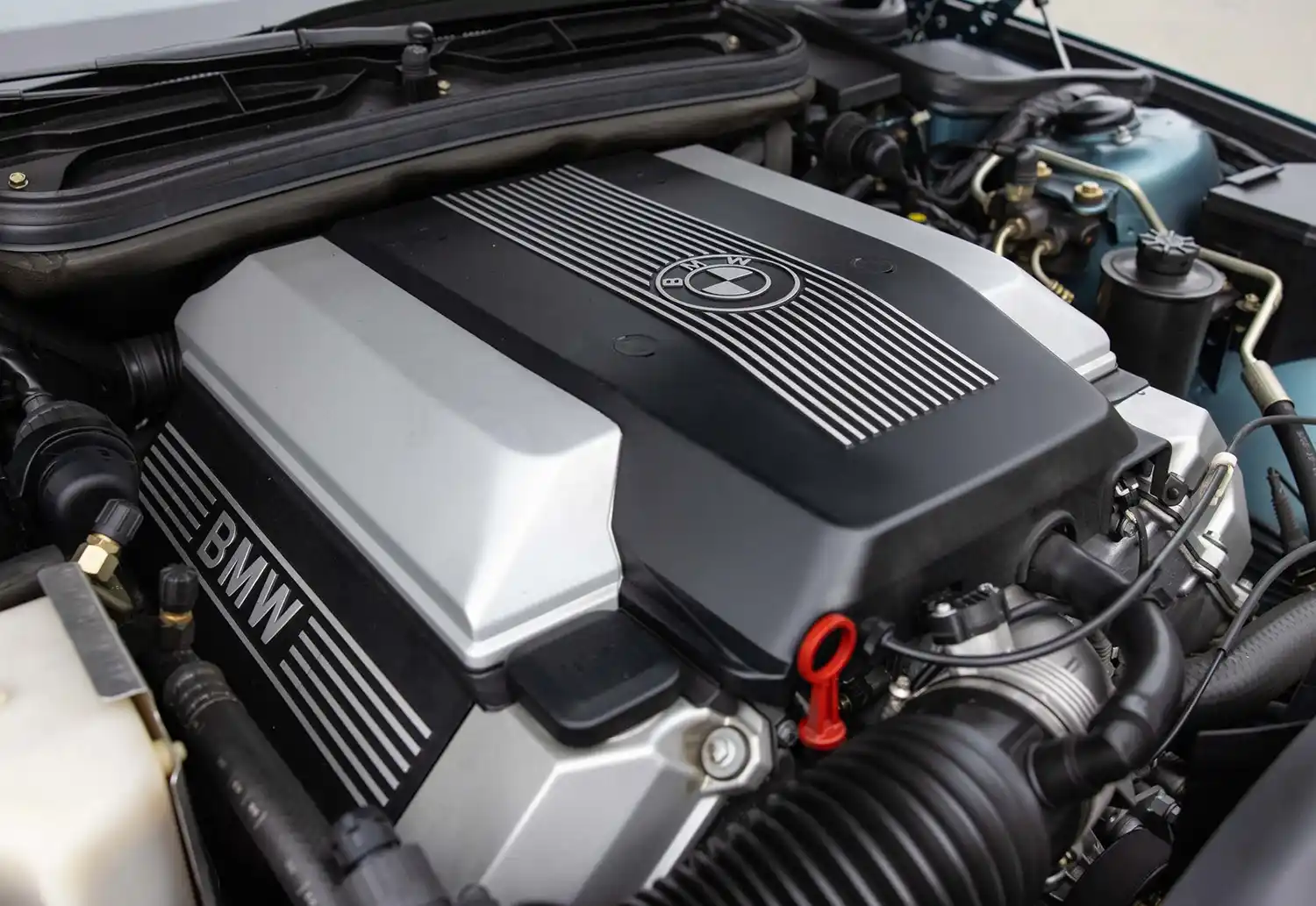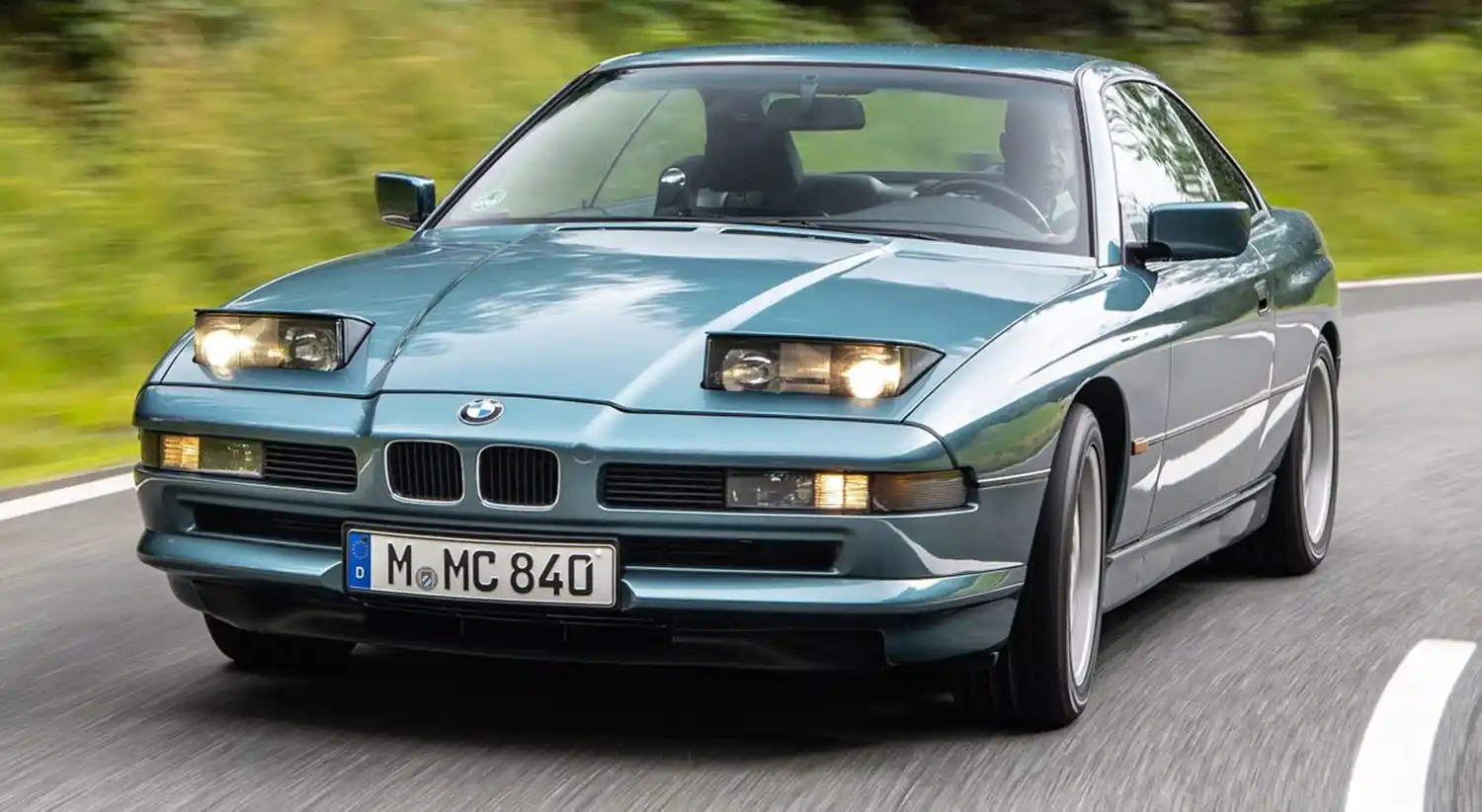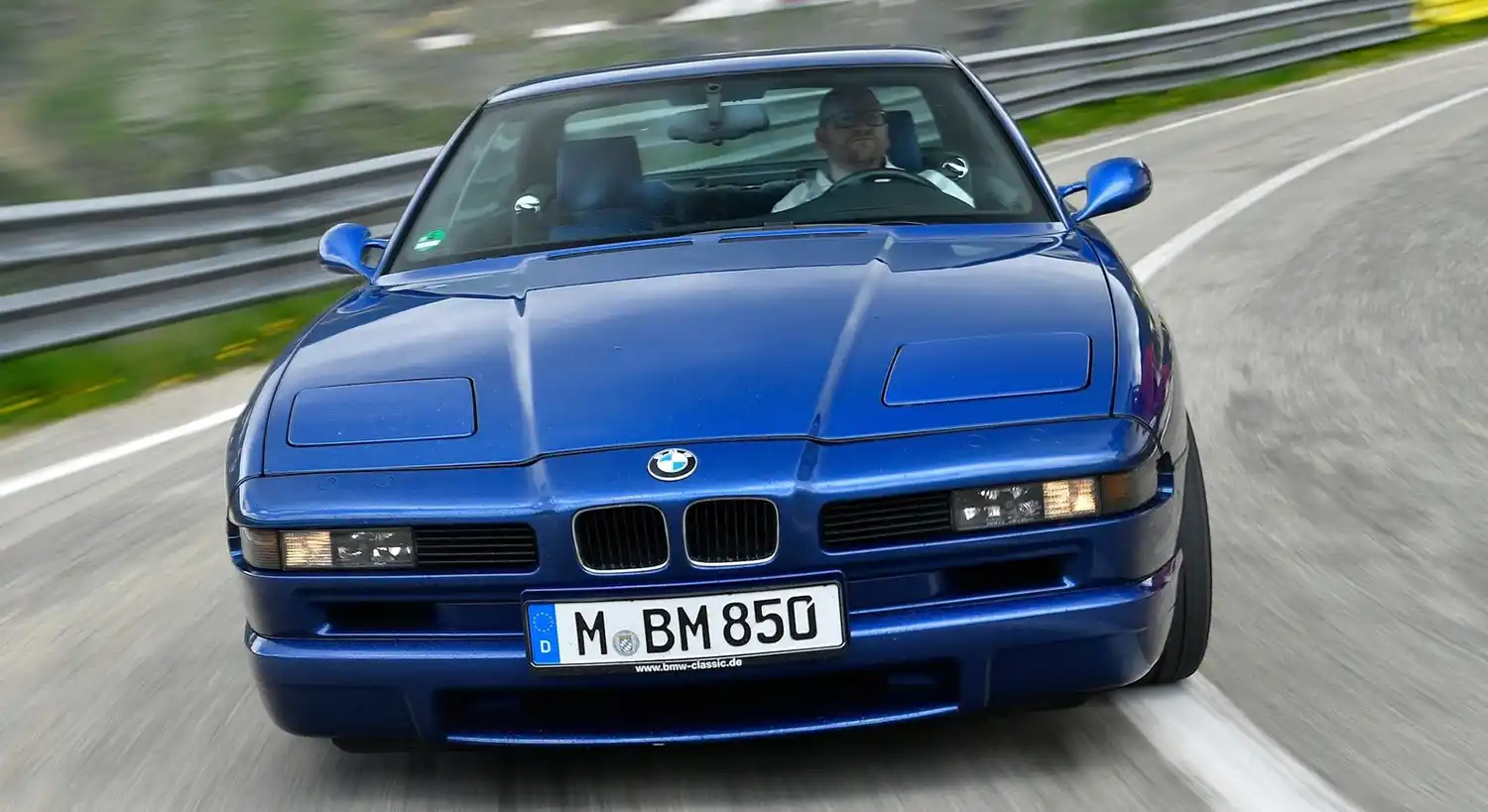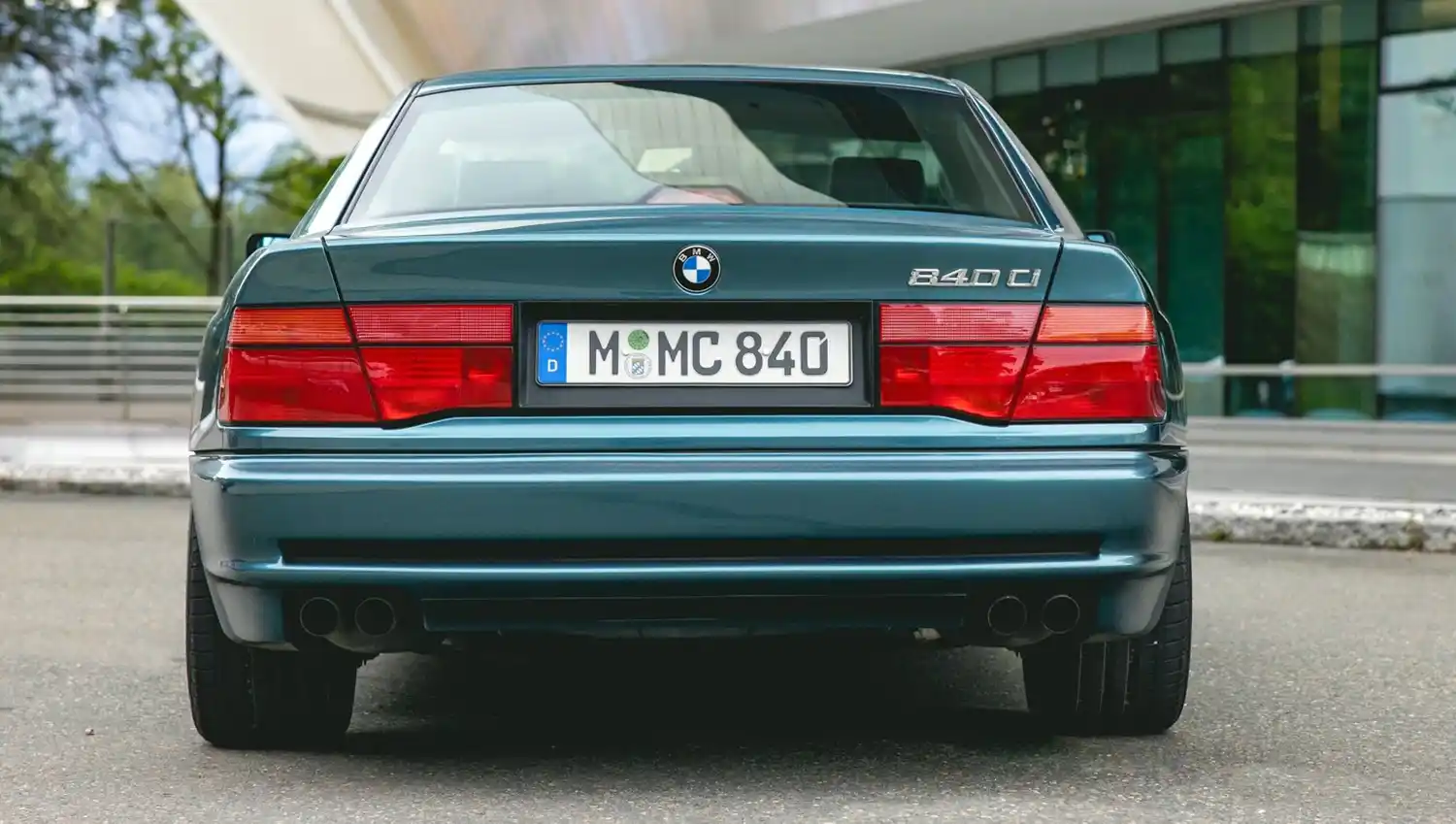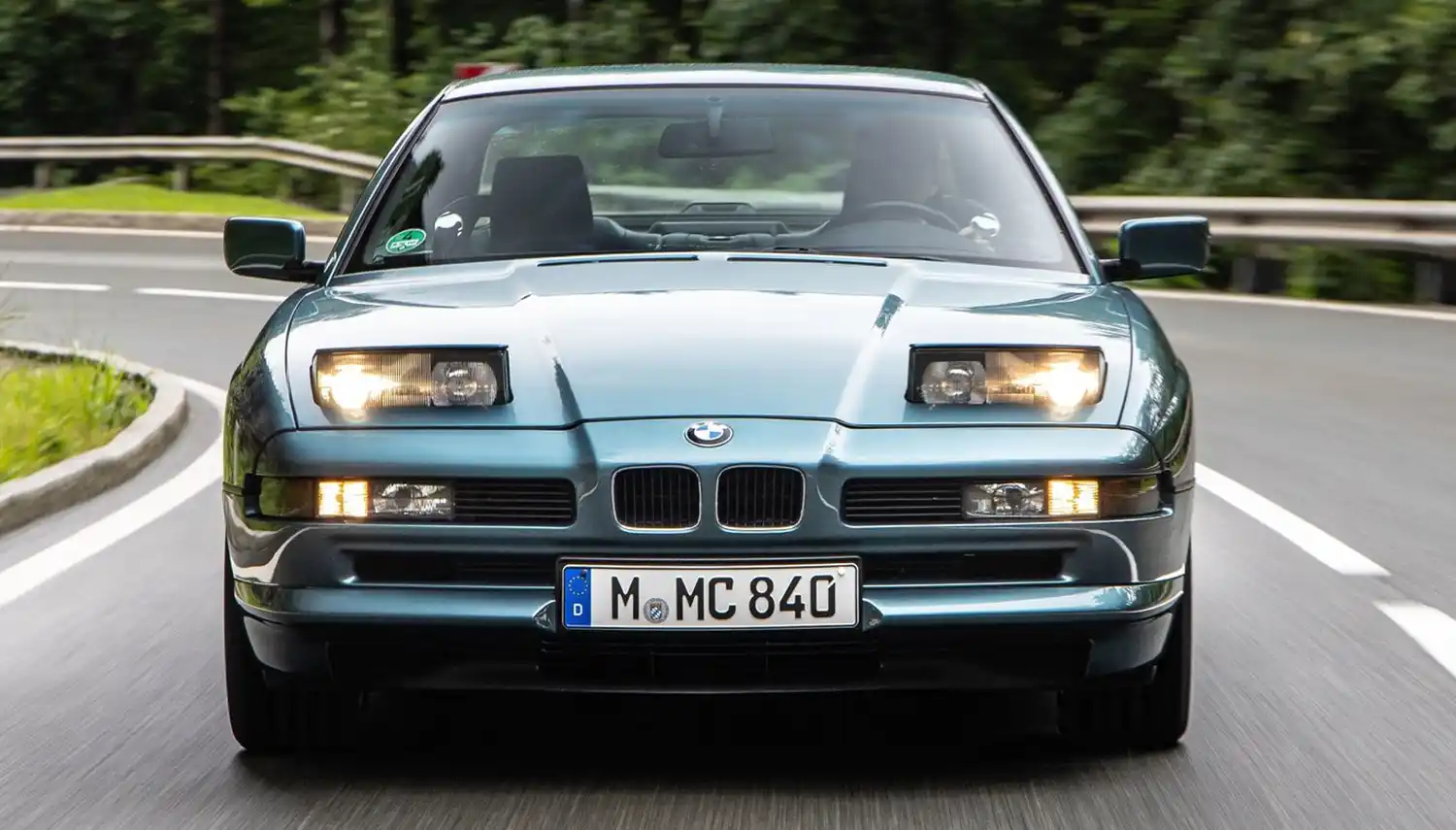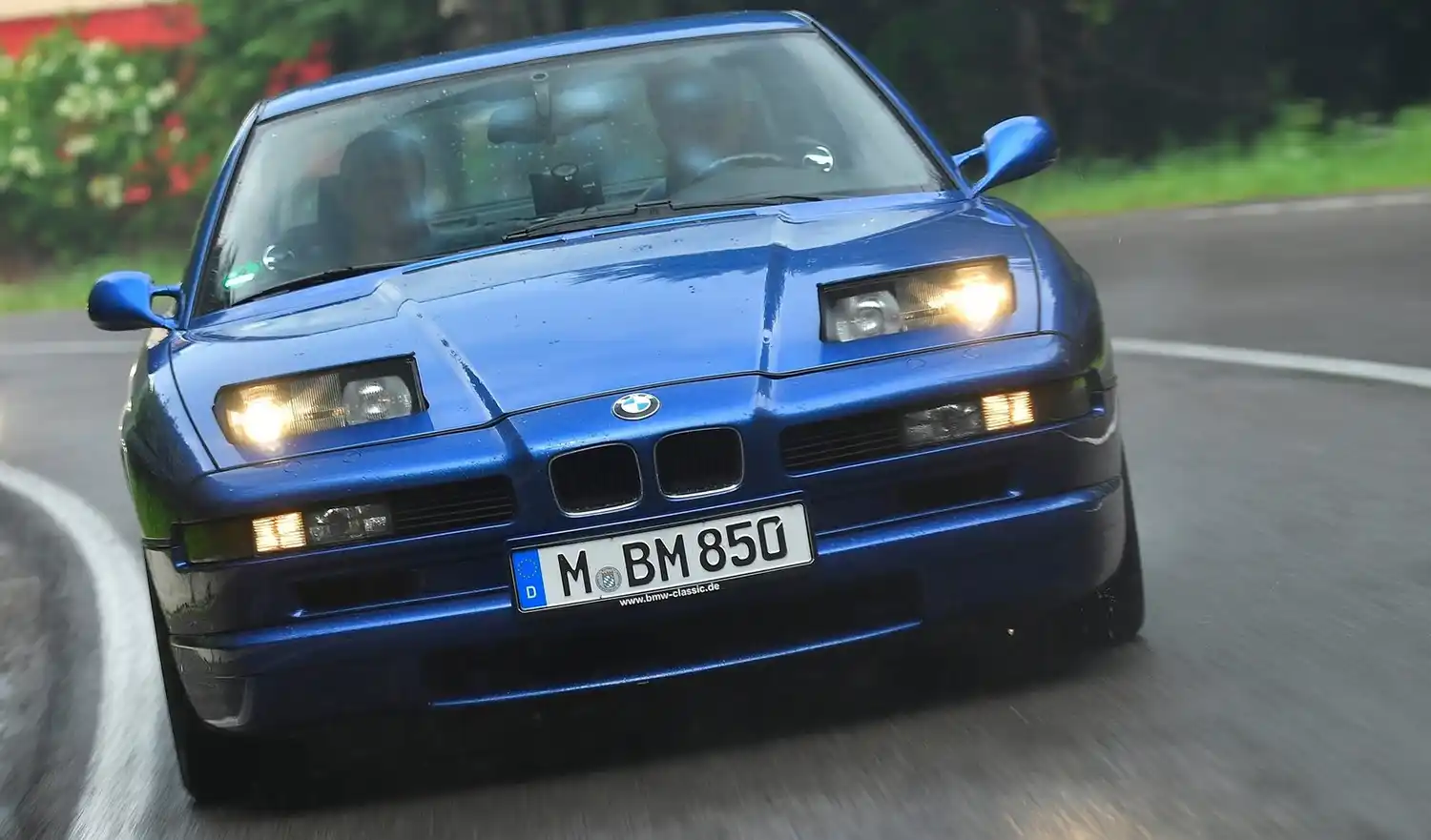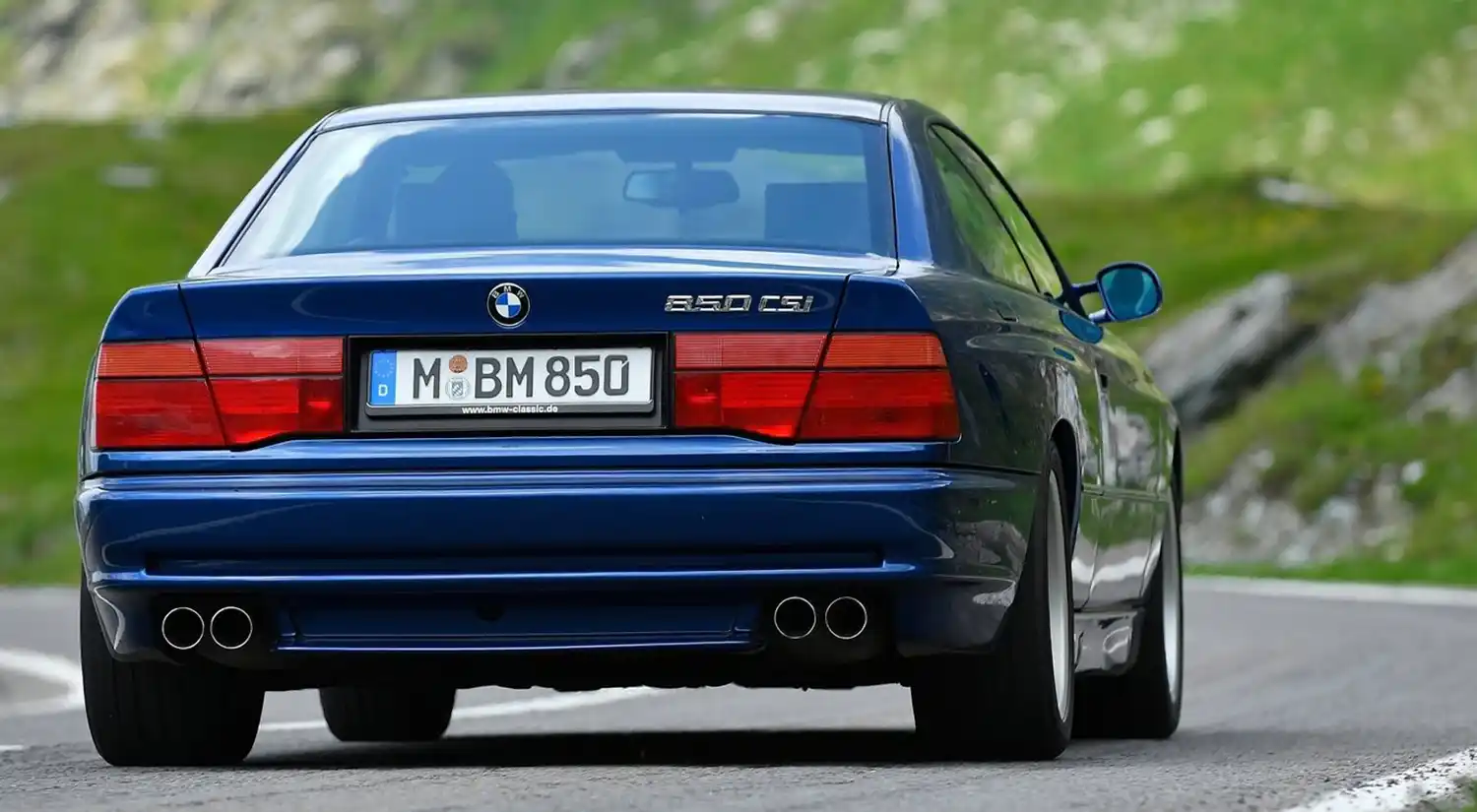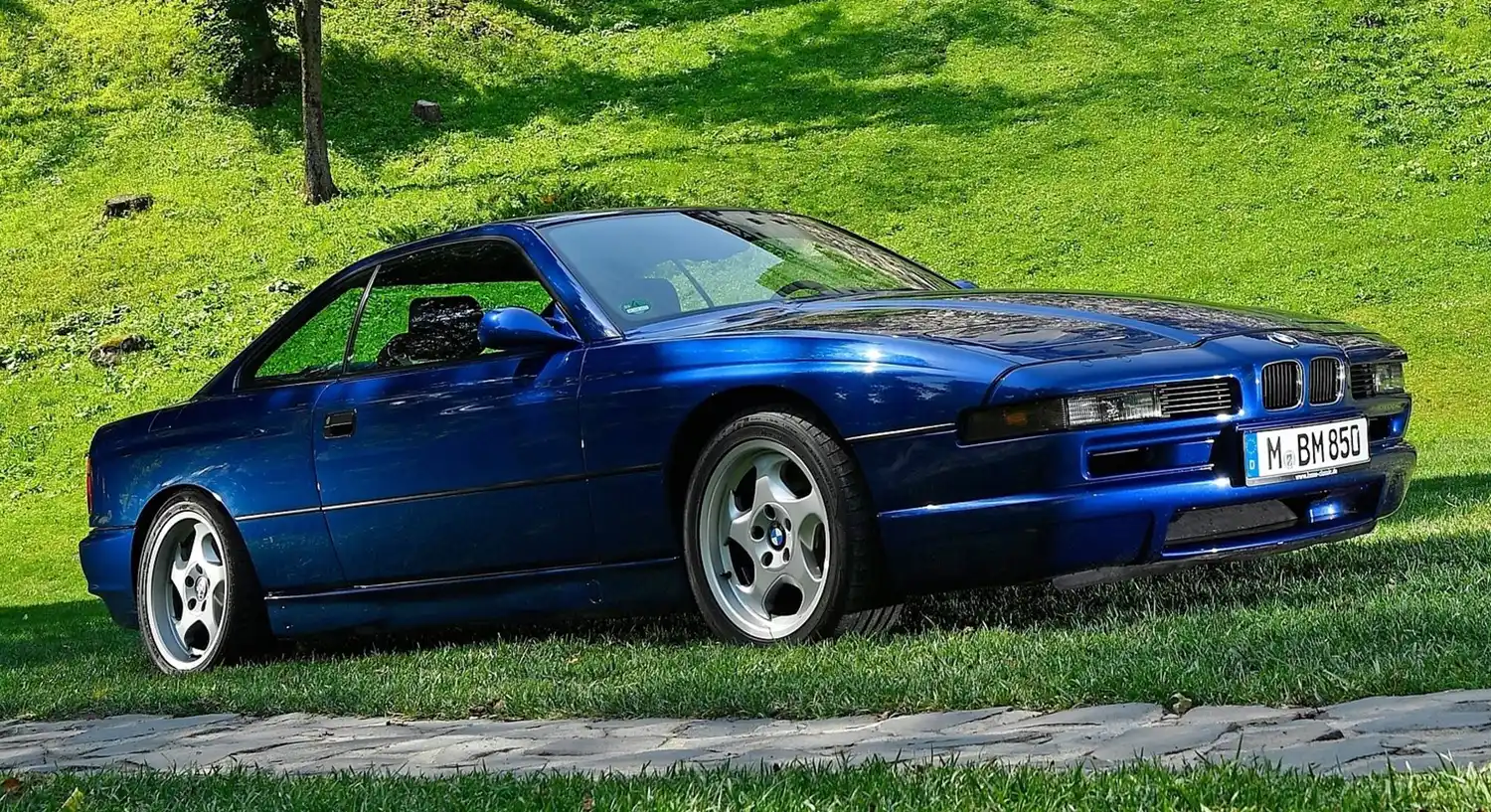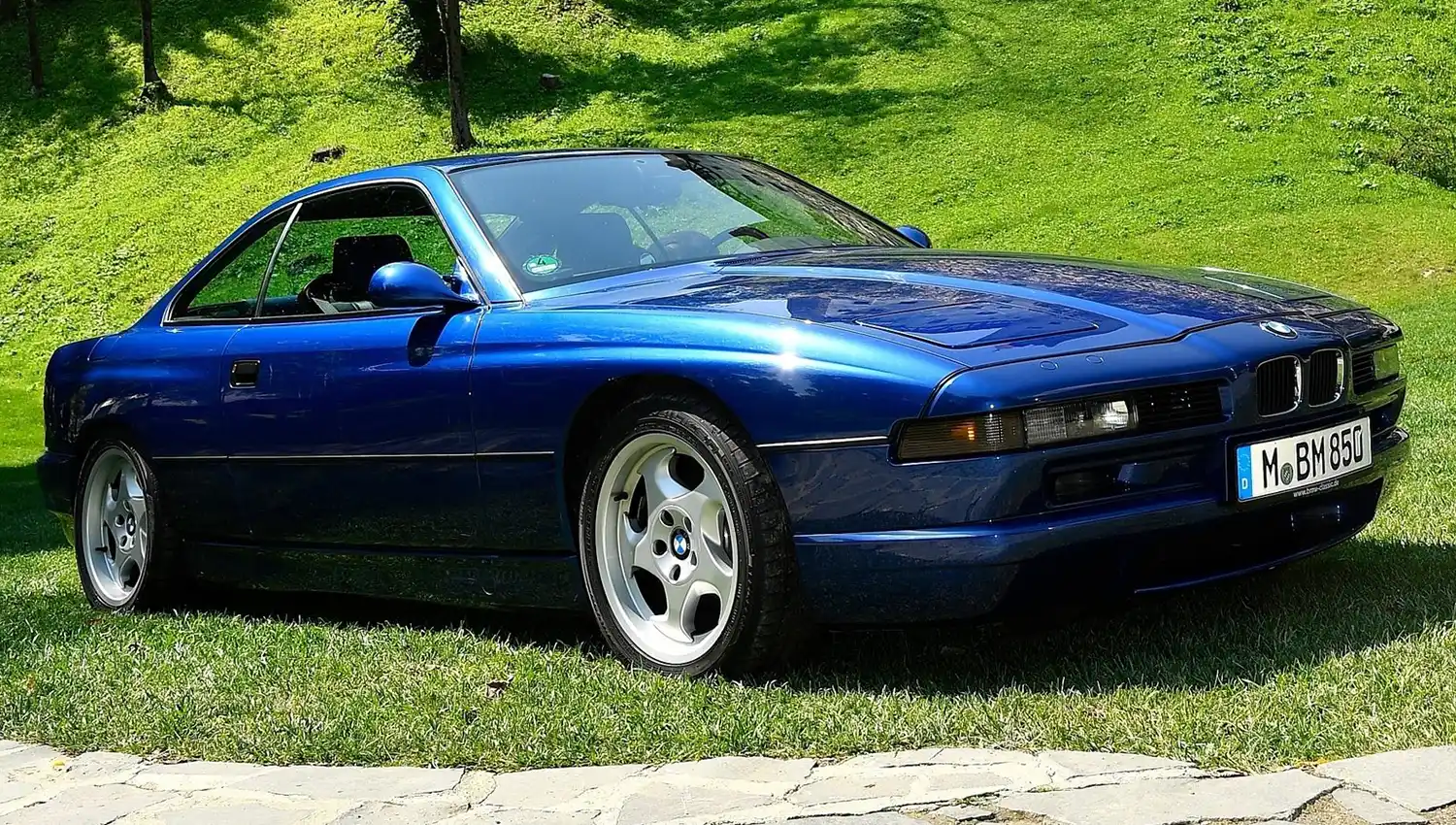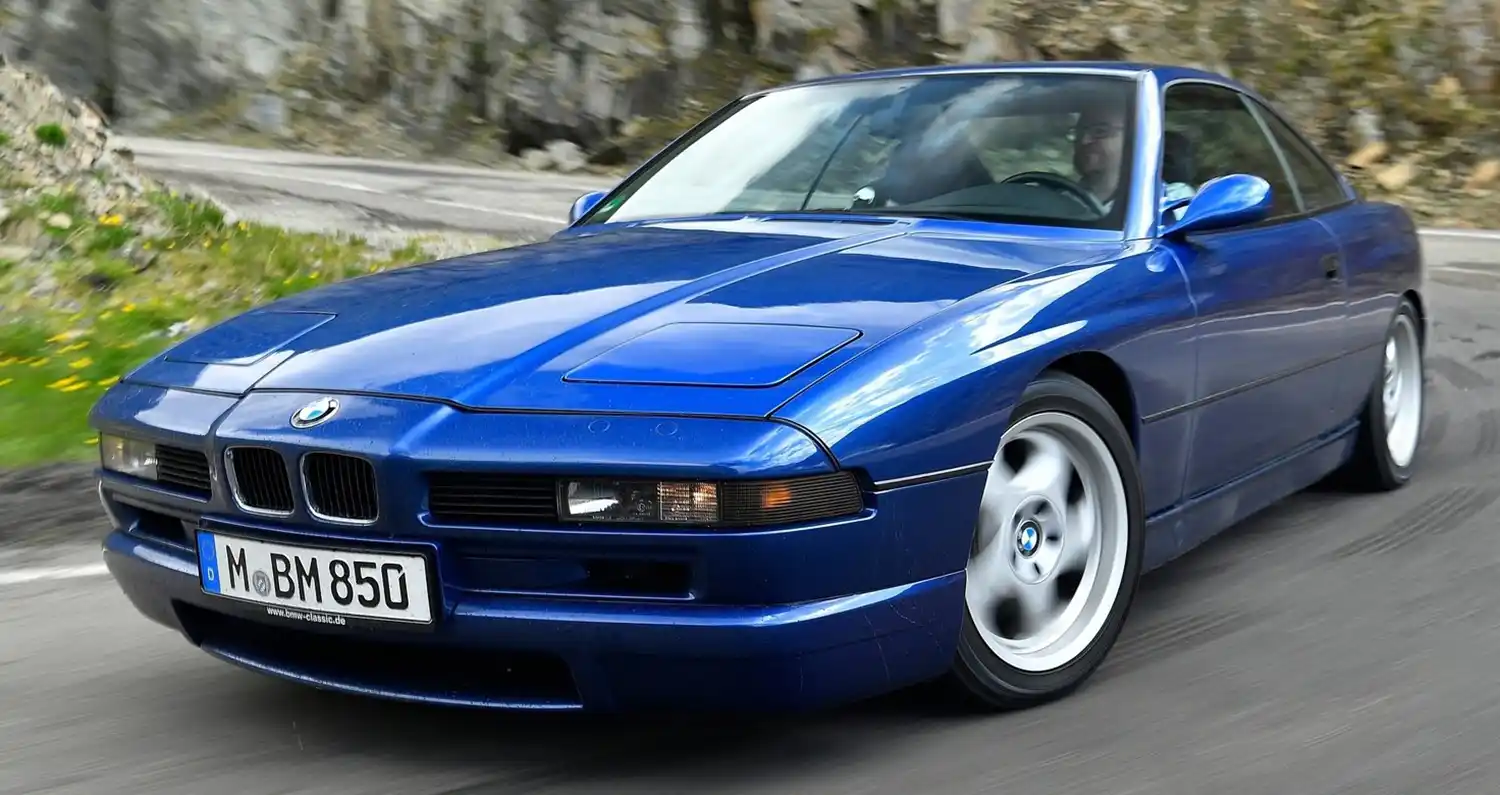
The BMW 8-Series stands out as a landmark model in a BMW Coupe lineage that dates back to the 1930s. A clean-sheet design, the car tagged “E31” by its maker launched its challenge to the world’s finest sports coupes with a design oozing avant-garde elegance, arresting performance attributes, an exceptional wealth of innovations and a sprinkling of exclusive luxury. The BMW 850i presented at the 1989 International Motor Show in Frankfurt represented a demonstration of the Munich-based carmaker’s development expertise, revealing not only a cutting-edge new design line but also an unparalleled array of technological details making their automotive debuts. The design of the wedge-shaped body – headlined most strikingly by a long, swooping bonnet (housing retractable headlights), smooth lines, the absence of B-pillars and a steeply cut rear end – showcased the dynamics and grace of the new coupe with equal élan.
The BMW 850i, moreover, followed the BMW 750i luxury Sedan introduced two years earlier as the second post-war German car to be powered by a 12-cylinder engine. The 5.0-litre unit developed 220 kW/300 hp and peak torque of 450 Newton metres (332 lb-ft) to propel the 1,790 kg 2+2-seater from 0 to 100 km/h (62 mph) in 6.8 seconds.
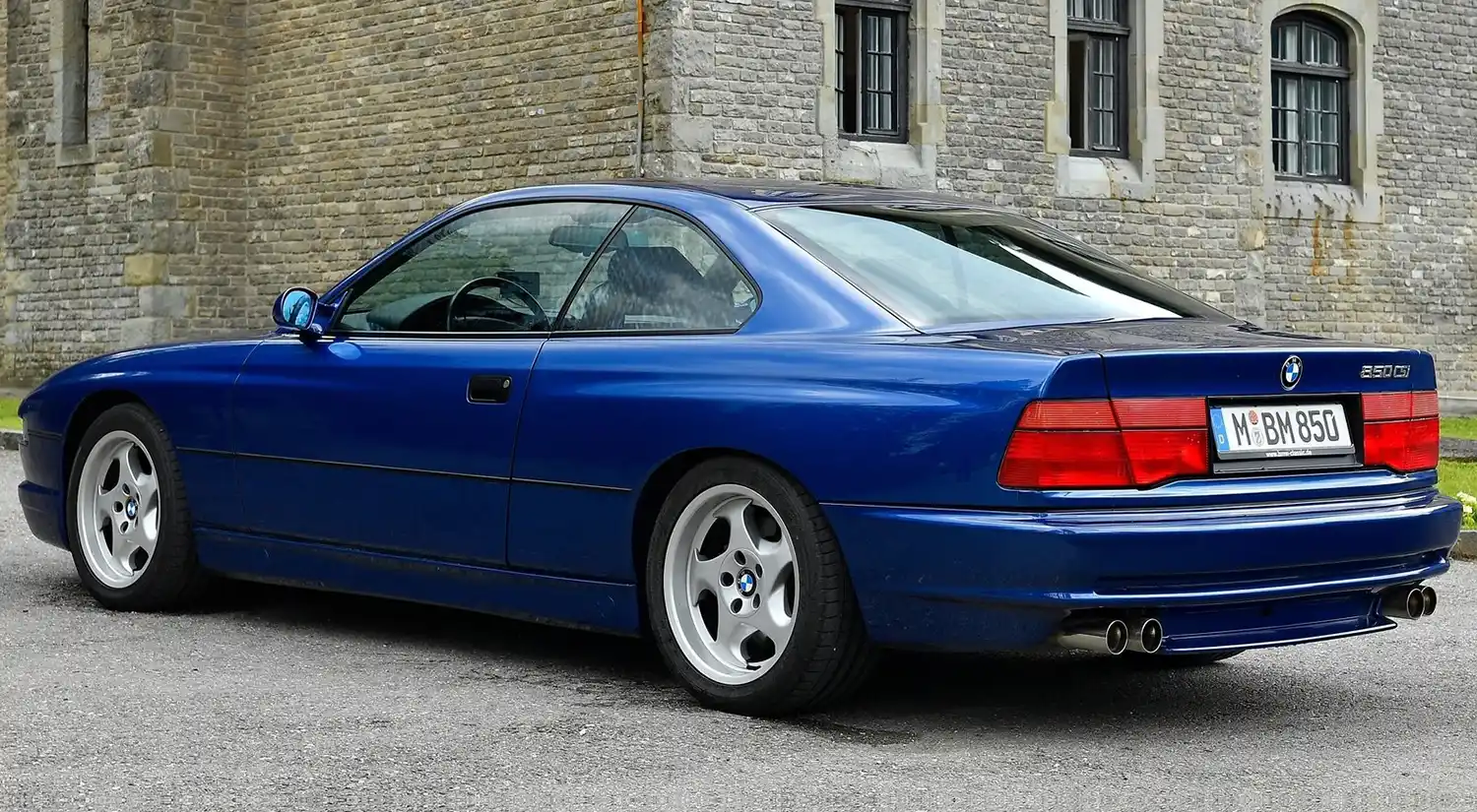
Channelling the engine’s power to the rear wheels was either a six-speed manual gearbox specially developed for the BMW 850i or a four-speed automatic, while its pioneering integral rear axle with five-link suspension was celebrating its premiere in the luxury Coupe. Automatic Stability Control plus Traction (ASC+T), speed-sensitive power steering and the Electronic Damper Control (EDC) system introduced as an option in spring 1990 were among the other details that helped give the BMW 8-Series its distinctive identity as a driving machine. The motoring press heralded the BMW 850i as a “coupe of velvet and silk” and the “perfect symbiosis of power and comfort”. After its first road test in the car, German car magazine “auto, motor und sport” wrote: “BMW has given the 850i all the high-tech weaponry it needs to take top spot.” And turning its attentions to the chassis technology of the BMW 8-Series, “Auto Bild” magazine commented: “It needs to be experienced to be believed, preferably through high-speed corners on the motorway: bumps, expansion joints – shocks that are sure to trigger sudden jolts of adrenaline in other cars – leave the 850i driver totally unruffled.”
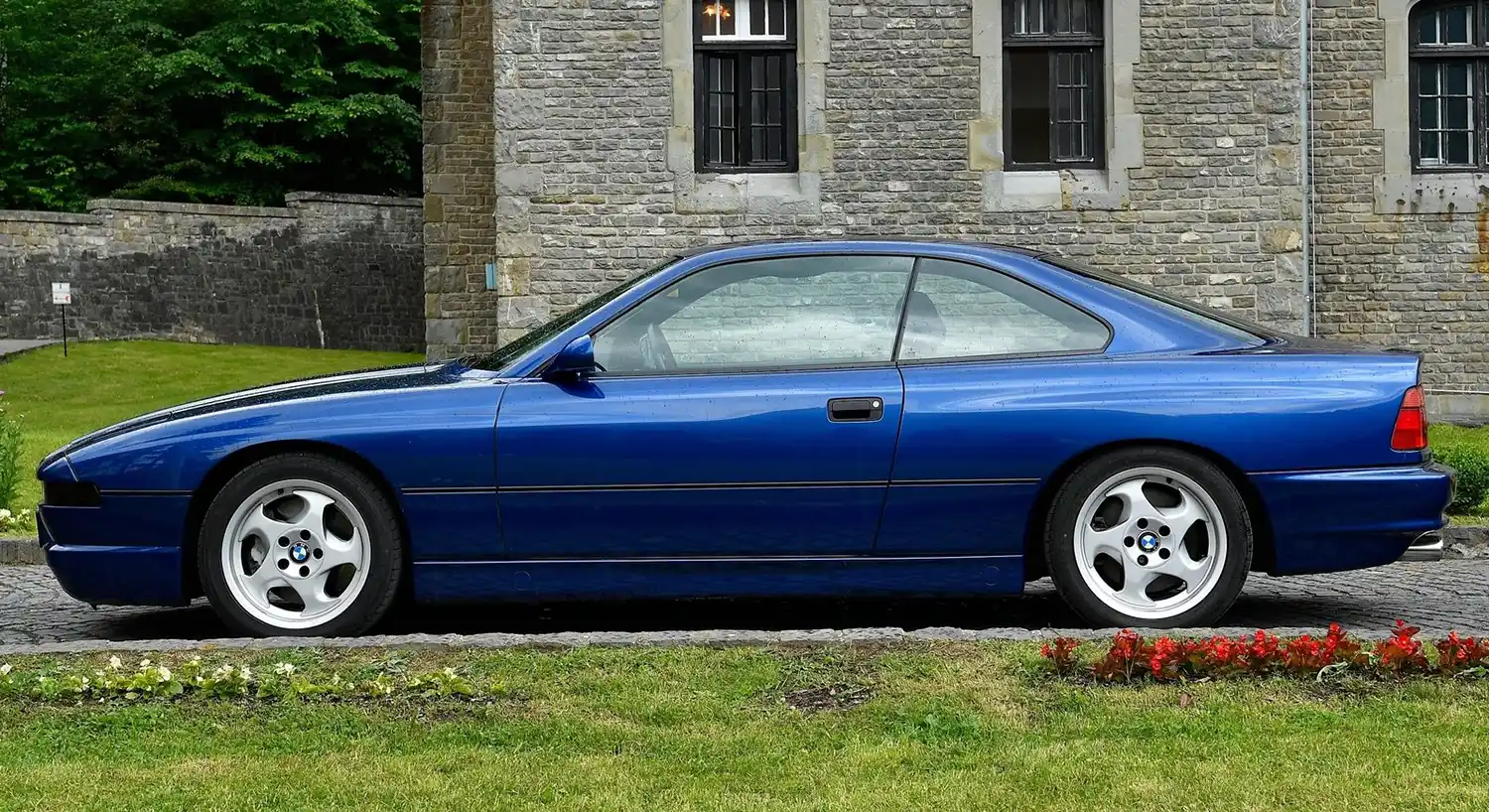
Among the other new features of the BMW 8-Series were the belt system integrated into the seats, an electrically adjustable steering column with memory function, an automatically dimming rear-view mirror, remote-control central locking and a high-performance onboard computer. A multiplex electrical system featured for the first time, with data transfer from several different systems via the same conduit enhancing reliability and reducing weight. Both the front and rear side windows of the luxury Coupe could be fully retracted. And, in another new addition, the front side windows were automatically lowered or raised when the doors were opened or closed, improving sealing and reducing wind noise as a result.
A second version of the 12-cylinder engine was added to the range for model year 1993. With displacement increased to 5.6 litres, the engine imbued the flagship BMW 850CSi model with 280 kW/381 hp and peak torque of 550 Newton metres (406 lb-ft). The sprint from 0 to 100 km/h (62 mph) could now be wrapped up in under six seconds. To take into account those elevated performance figures the BMW 850CSi was also given a new driving dynamics system, including active rear axle kinematics. Here, the rear wheels respond to the car’s speed and steering angle by turning in the same direction to optimise directional stability through dynamically taken corners and sudden evasive manoeuvres.
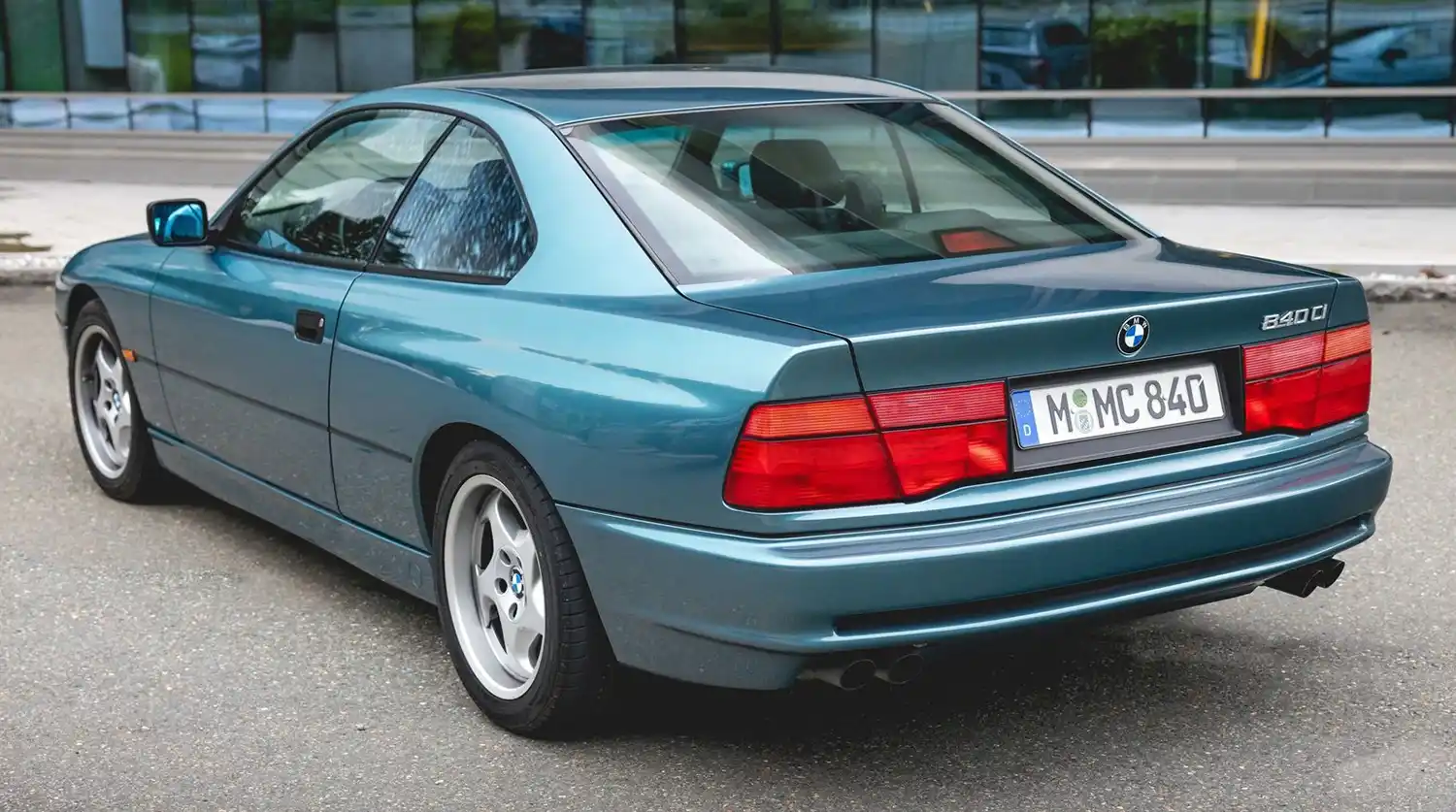
With the launch of the BMW 850CSi, the existing model was rechristened BMW 850Ci and given myriad detail modifications. Standard equipment now included an airbag each for the driver and front passenger, infrared remote control and folding rear seat backrests. DSC (Dynamic Stability Control) was available as an option and the automatic gearbox was now equipped with adaptive control. Autumn 1994 witnessed a changing of the guard under the bonnet: the BMW 850Ci was now powered by a 5.4-litre V12 engine with 240 kW/326 hp, which customers could choose to combine with a new five-speed automatic gearbox. The BMW 840Ci joined the line-up in 1993. Its 4.0-litre V8 produced 210 kW/286 hp, providing an undeniably sporty entry point into the world of BMW luxury Coupes.
In 1995 the BMW 8-Series inspired British artist David Hockney to add his vision to the BMW Art Cars series. The BMW 850CSi he created symbolised an artistic take on transparency. Hockney added flourishes such as stylised intake manifolds on the bonnet and silhouettes of the driver and steering column on the driver’s door, while the artist’s dachshund Stanley is painted onto the rear side panel as if he were a passenger in the rear.
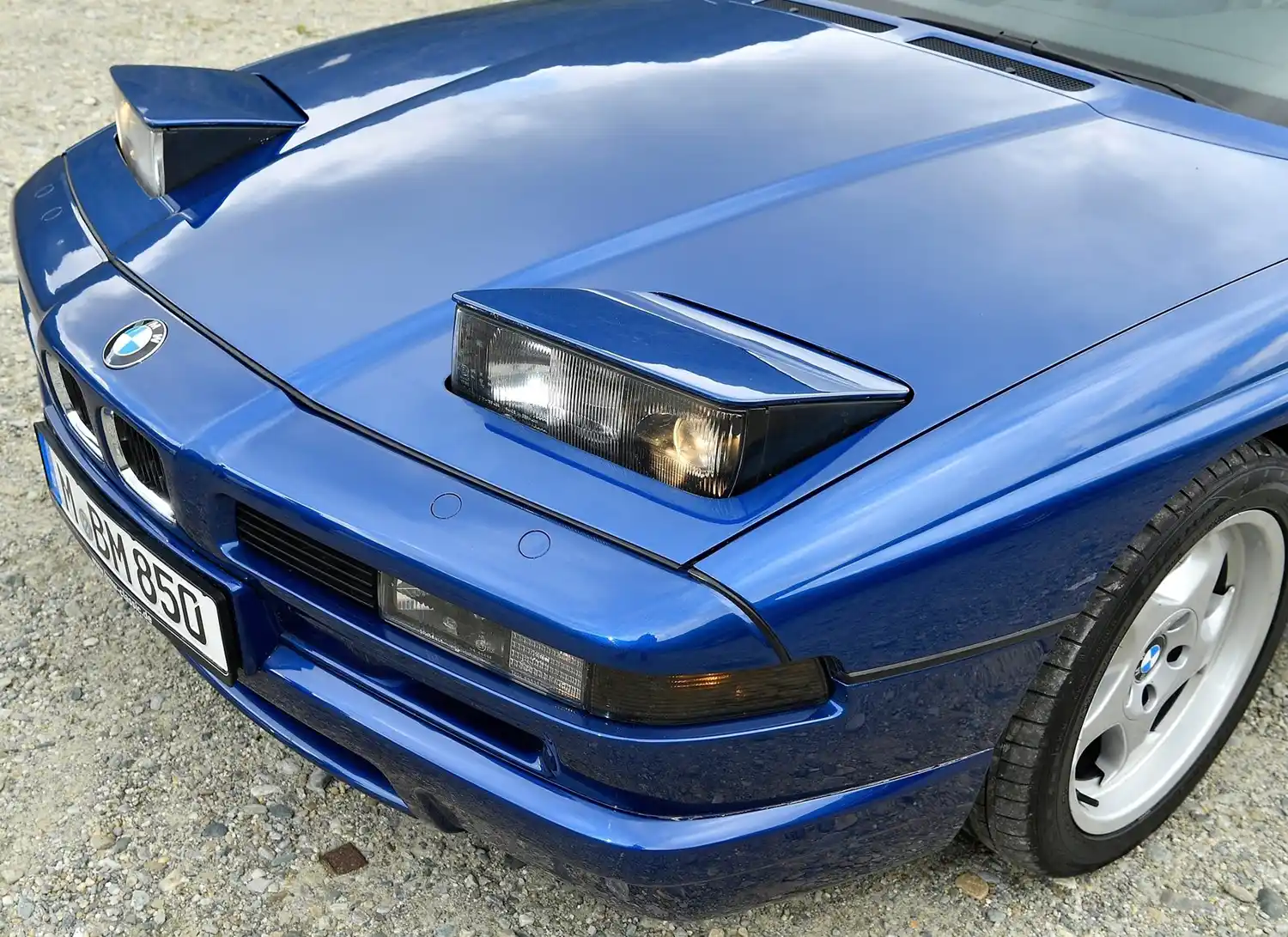
A total of 30,621 examples of the BMW 8-Series were produced up to 1999, 24 of which were lavishly hand-built at BMW’s Rosslyn plant in South Africa. For tax reasons, assembling the cars there was more cost-efficient than importing the finished articles. More than two thirds of all the BMW 8-Series Coupes produced were 12-cylinder models, and only one in six were fitted with the six-speed manual gearbox. The top-of-the-line BMW 850CSi accounted for 1,510 of the overall unit figure. The ultra-high-performance model was available exclusively with a manual gearbox, in keeping with its sporting character.
